Member Publications
June 2025
Theopolitics and the Era of the Witness
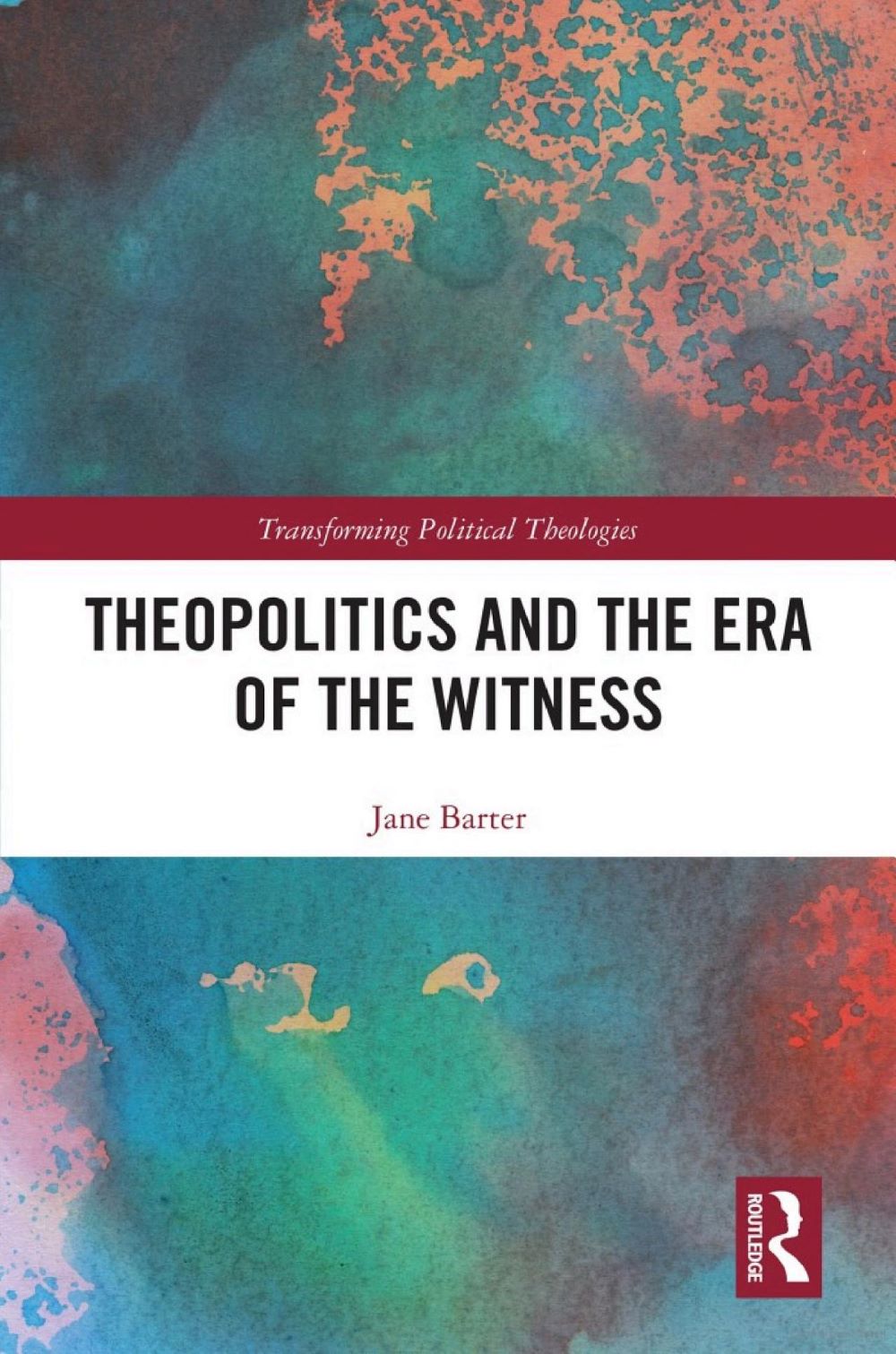
The University of Winnipeg’s Dr. Jane Barter has just published a monograph, Theopolitics and the Era of the Witness, for Routledge’s Transforming Political Theologies series.
Theopolitics and the Era of the Witness focuses on witnessing in the aftermath of political atrocity or genocide. It offers a diachronic study of the relationship between theological forms of witnessing within Jewish and Christian traditions and public forms of witnessing in the twentieth and twenty-first centuries. This book explores the ways in which various witnesses to political atrocity and their mediators tacitly drew on religious themes of salvation to make sense of their suffering. It investigates survivor testimony and the use made of it through scholarly interpretations of testimony within the Hebrew Bible, New Testament, and theological and philosophical traditions within Judaism and Christianity. The chapters move from a consideration of the early post-Shoah writings of Paul Celan and Primo Levi through to a discussion of the Truth and Reconciliation Commissions of South Africa and Canada. The author makes the case for a "weak messianism" or remnant witnessing as an antidote to overdetermined and politicized uses made of survivor testimonies. This book makes a valuable contribution to the work of theopolitics, which claims that theology, despite its persistent misuse, can serve a constructive and critical force within public life, albeit in a chastened key.
Visit the Routledge website or read the UWinnipeg news story for more information
January 2025
"Transgression on the Frontier: The Ludicity of Incest in Bioshock Infinite"
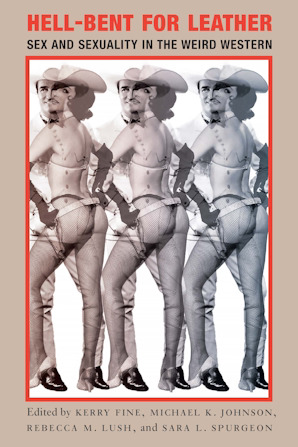
Christina Fawcett has published this chapter with Marc. A. Ouellette in Hell-Bent for Leather: Sex and Sexuality in the Weird Western, edited by Kerry Fine, Michael K. Johnson, Rebecca M. Lush and Sara L. Spurgeon.
It is an analysis of how the tropes of the Western gunslinger's masculinity and figurations of desire are complicated through the player's involvement in the relationship between Booker DeWitt, Elizabeth Comstock and Father Comstock. The silence, the emotional unavailability and the play of dominance and restraint invites player projection, making Elizabeth's growing power and eventual reveal as Booker's daughter an uncomfortable acknowledgement of incestuous desire. The position of the female figure as player-reward, in her hyper-ludic aid and to-be-looked-at-ness, is upended with our revulsion at the relationships between characters and the role we have taken as father and romantic pursuer.
January 2025
"Buying and selling the Metaverse: Science fiction speculation, modern technologies and digital data economies"

Christina Fawcett has published this chapter with Katie Szilagyi in Science Fiction as Legal Imaginary, edited By Alex Green, Mitchell Travis, and Kieran Tranter.
Cyberpunk literature’s critical lens questions technology’s influence in modern life. Neal Stephenson’s iconic cyberpunk novel Snow Crash moves beyond simple critique and into satire as pizza delivery driver Hiro Protagonist contends with an infection moving through the Metaverse. In this influential novel, a dystopian digitised world and the distribution of computer viruses to humans challenge the oft-idealised potential of online interaction. Social media giant Facebook’s recent rebranding as ‘Meta’ prompted commentary linking today’s ubiquitous computing environment to a growing ‘Metaverse’, where information-generating activities connect as online and offline worlds converge. While many Silicon Valley technology founders espouse Snow Crash as inspiration for our increasingly online world, they neglect its legacies as both dystopian fiction and satire of modernity. Today’s businesses incorporate modern approaches to electronic commerce, known as ‘platform economics’ or ‘surveillance capitalism’. The primary resource for knowledge economy growth is big data, which is described as both a condition and expression of surveillance capitalism. Conceptualising the impacts of data-driven approaches on law with the warnings Stephenson offered about his Metaverse permits a new perspective on the potential policy-making and regulatory challenges imposed by Metaverse-styled environments.
December 17, 2024
Justice in 21st-Century Fairy Tales and the Power of Wonder
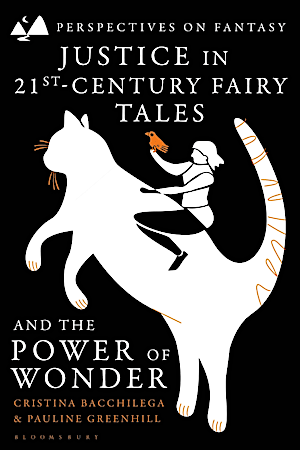
Exploring a range of international works such as films, streaming television series, a graphic novel, and a picture book, this open access book interrogates how, and to what extent, fairy tales are put to work for justice in the areas of environment and ecology, kinship and family, ability and disability, and sex and gender. As Bacchilega and Greenhill demonstrate, some 21st-century fairy tales channel the genre’s wonder to offer otherwise possibilities for being and acting in the world that are not confined to socially sanctioned paths. Drawing on visual and audio-visual case studies of texts such as The Magic Fish, Julián Is A Mermaid, Pokot [Spoor], Gräns [Border], The Dragon Prince, Gatta Cenerentola [Cinderella the Cat], and Sweet Tooth, they examine how the wonder and preternatural of fairy tales model a sustained desire to believe in and realize new ways of existence that have often been too easily dismissed. Guided by theories in fields including ecological, gender, disability, critical race, Indigenous, fantasy, posthuman, and adaptation studies as they intersect with folklore and fairy tale studies, this book examines how creators of wonder tales since the beginning of the new millenium have presented provocations around humans’ political and social relations with nature and culture. Analyzing justice from a variety of positions and establishing how tales of the otherwise can develop optative thinking, Justice in 21st-Century Fairy Tales and the Power of Wonder refutes the conservative, patriarchal, and merely nostalgic Disnified narrative of the genre and insists on the power of wonder within and beyond fairy tales.
The eBook editions of this book are available open access under a CC BY-NC-ND 4.0 licence on bloomsburycollections.com. Open access was funded by the Social Sciences and Humanities Research Council of Canada grant 435-2019-0691 and The University of Winnipeg, Canada.
November 27, 2024
Les ambiances dans les littératures de langue française du XIXe siècle à nos jours
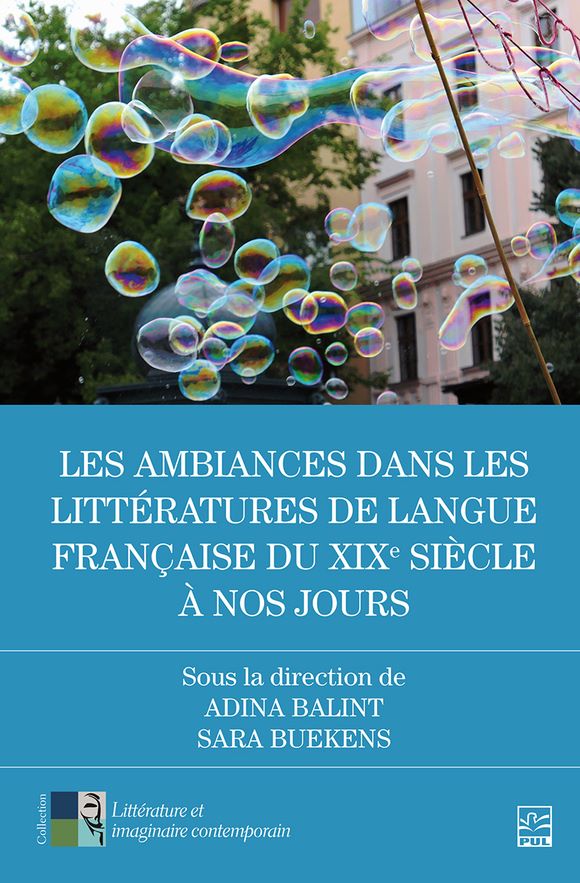
Largely ignored by literary studies, ambiances are nevertheless at the heart of French-language literature from the 19th century to the present day: in the emotional tones that accompany the experiences of daily life, in our relationship to urban space or the natural environment, or even in situations of interaction and relationships.
If the concept of “ambience” was initially derived from the Stimmung (“affective tone”) of German phenomenologists to account for the atmosphere which surrounds a person or a group, it allows us here to question our relationship to places, objects, individual and collective memory and everyday situations. This concept, which means omnipresence and the elusive, leads us to analyze the way in which the writing of the atmosphere and the themes linked to it influence our existences and our ethical and political commitments.
It is to the resources of the concept of “ambience” used to analyze the literary text that this polyphonic volume is devoted, with the ambition of making sensitive the invisible texture of our lives and our relationships with the world.
You can find more information and read an excerpt here
November 14, 2024
“Language Regimes, Global English, and National Public Education”
Peter Ives has published the aforenamed chapter on his Global English Education Project, in States of Language Policy: Theorizing Continuity and Change, edited by Ericka Albaugh, Linda Cardinal and Remi Leger (Cambridge University Press, 2024, pp. 267-88).
Many academic and media accounts of the massive spread of English across the globe since the mid-twentieth century rely on simplistic notions of globalization mostly driven by technology and economic developments. Such approaches neglect the role of states across the globe in the increased usage of English and even declare individual choice as a key factor (e.g., De Swaan, 2001; Crystal, 2003; Van Parijs, 2011; Northrup, 2013). This chapter challenges these accounts by using and extending the state traditions and language regimes framework, STLR (Cardinal & Sonntag, 2015). Presenting empirical findings that 142 countries in the world mandate English language education as part of their national education systems, it is suggested there are important similarities with the standardization of national language at the nation-state level especially in the nineteenth century and early twentieth centuries. This work reveals severe limitations of other approaches in political science to global English, including linguistic justice. It is shown how in the case of global English the convergence of diverse language regimes must be distinguished from state traditions but cannot be separated from them. With the severe challenges to global liberal cosmopolitanism, the role of individual state language education policies will become increasingly important.
Visit the Cambridge University Press webpage
Visit the Global English Education portal on the UWinnipeg website
November 2024
Rethinking Free Speech

Clashes over free speech rights and wrongs haunt public debates about the state of democracy, freedom and the future. While freedom of speech is recognized as foundational to democratic society, its meaning is persistently misunderstood and distorted. Prominent commentators have built massive platforms around claims that their right to free speech is being undermined. Critics of free speech correctly see these claims as a veil for misogyny, white-supremacy, colonialism and transphobia, concluding it is a political weapon to conserve entrenched power arrangements. But is this all there is to say?
Rethinking Free Speech will change the way you think about the politics of speech and its relationship to the future of freedom and democracy in the age of social media. Political theorist Peter Ives offers a new way of thinking about the essential and increasingly contentious debates around the politics of speech. Drawing on political philosophy, including the classic arguments of JS Mill, and everyday examples, Ives takes the reader on a journey through the hotspots of today’s raging speech wars. In its bold and careful insights on the combative politics of language, Rethinking Free Speech provides a map for critically grasping these battles as they erupt in university classrooms, debates around the meaning of antisemitism, the “cancelling” of racist comedians and the proliferation of hate speech on social media. This is an original and essential guide to the perils and possibilities of communication for democracy and justice.
Learn more:
- Visit the publisher's website
- "Freedom of screech? As the right howls, a Prof clarifies free speech debates" (review by Robert Hackett, rabble.ca)
- "Speaking their minds: Notions of free speech across the political spectrum unpacked in concise, careful volume" (review by Conrad Sweatman, Winnipeg Free Press)
- "Rethinking free speech with Peter Ives" (on "So to Speak: The Free Speech Podcast" ep.233, FIRE)
November 2024
Solving Names: Worldliness and Metaphysics in Librarianship
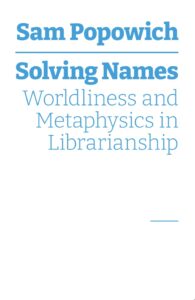
Taking a cue from William James criticism of metaphysics and Edward W Said's formulation of "worldliness", Solving Names offers a pragmatic, politically-committed analysis of various issues in librarianship today. These issues include intellectual freedom, data/technology/artificial intelligence, Indigenous conceptions of knowledge and sovereignty, the politics of knowledge, and social justice.
Learn more about the book on the Library Juice Press website
October 30, 2024
“A Sin Against God and Humanity: The Genocide of the Palestinian People and the Churches’ Silence”
At its annual meeting in June 2024, the members of the Canadian Theological Society passed a motion of solidarity with Palestinians and student protesters in encampments at universities around the globe. The statement lamented the loss of over 40,000 lives in Palestine (at time of writing), including 15,000 children; condemned the scholasticide in Gaza; and articulated our condolences and solidarity with those students and faculty members there who continue to learn and teach in the most horrific of circumstances. The statement was also an articulation of the society's commitment to learning from Palestinian Christians and to heed their call for Western theologians, educational institutions, and churches to repent of their long-standing indifference to their suffering and to their complicity in their ongoing genocide. In this essay, the authors unpack the impetus, meaning, and significance of this motion for Canadian theology today as they urge Canadian theological institutions and churches to critically and urgently assess their historical indifference to and complicity in the ongoing Nakba of the Palestinian people. The authors also call on Canadian theologians to investigate the abiding connections between the theological justification of settler colonialism in Canada and Palestine, and the genocide of indigenous peoples.
A video abstract of the paper is available on the journal's website
Andraos, Michel and Jane Barter, “A Sin Against God and Humanity: The Genocide of the Palestinian People and the Churches’ Silence,” Toronto Journal of Theology 40:2.
You can find out more about this research in The Conversation and on YouTube
September 9, 2024
"To Serve and Protect from Behind the Mask: Miles Morales in Marvel’s Spider-Man and Marvel’s Spider-Man: Miles Morales, Policing, Justice, and Representation"
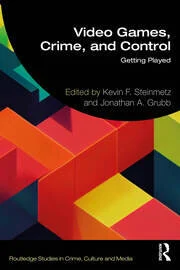
Christina Fawcett has published this chapter with Steven Kohm in Video Games, Crime and Control, edited By Kevin F. Steinmetz, Jonathan A. Grubb.
Fawcett and Kohm look at the significant issues of surveillance, race and vigilantism and justice in Marvel's Spider-Man and Spider-Man: Miles Morales as participatory and critical spaces the engage in both dominant narratives and countervisuals on policing. As popular superhero media, the game is imbricated in traditions of crime, vigilantism, and law enforcement that subvert the game’s potential for societal critique. In representing complex interrelated issues of justice, the game functions at times to critique race and policing, while simultaneously reifying traditional law-and-order values and vigilantism in superheroes. Miles embodies a tension between his racialized identity and his work as an extralegal member of the policing body. The game troubles our understanding of either position as primary because Miles is driven both by a love of his community and family, and a need for justice. While critiquing the limited visibility and efficacy of the police, the game promotes invasive privatized surveillance; while disregarding the social roots of crime, criminal etiology is grounded in conspiracies, corporate interests, and gang-warfare. The game’s potential as a critical countervisual complicated by a narrative that steadfastly serves existing systems of power.
August 27, 2024
Everything and Nothing at All: Essays

FINALIST FOR THE 2024 WRITERS' TRUST PRIZE FOR NONFICTION • The Globe and Mail's Best Books of 2024 • CBC's Best Canadian Non-Fiction of 2024
"Here is my disconnect: the private and public self. My mind and body. The real person and curated spectacle. . . . Are there actual roots with which to fasten this performance to anything real?"
As a transnational and transracial adoptee, Jenny Heijun Wills has spent her life navigating the fraught spaces of ethnicity and belonging. As a pan-polyam individual, she lives between types of family—adopted, biological, chosen—and "community"; heternormativity and queerness; commitment and a constellation of love. And as a parent with a lifelong eating disorder, who self-harms to cope with mental illness, her love language is to feed, but daily she wishes her body would disappear. These facets of Wills' being have served as the anchors she once clung to and the harsh parameters of what others now imagine she can be.
Everything and Nothing At All weaves together a lifetime of literary criticism, cultural study, and a personal history into a staggering tapestry of knowledge. And though the experiences of accumulating this knowledge have often been shot through with pain, Wills spins these threads into priceless gold—a radical, fearless vision of kinship and family. Devastating, illuminating, and beautifully crafted, these essays breathe life into the ambiguities and excesses of Wills' self, transforming them into something more—something that could be everything.
Visit the publisher's website for more information
June 4, 2024
Simone Chaput : espaces, cultures et identités
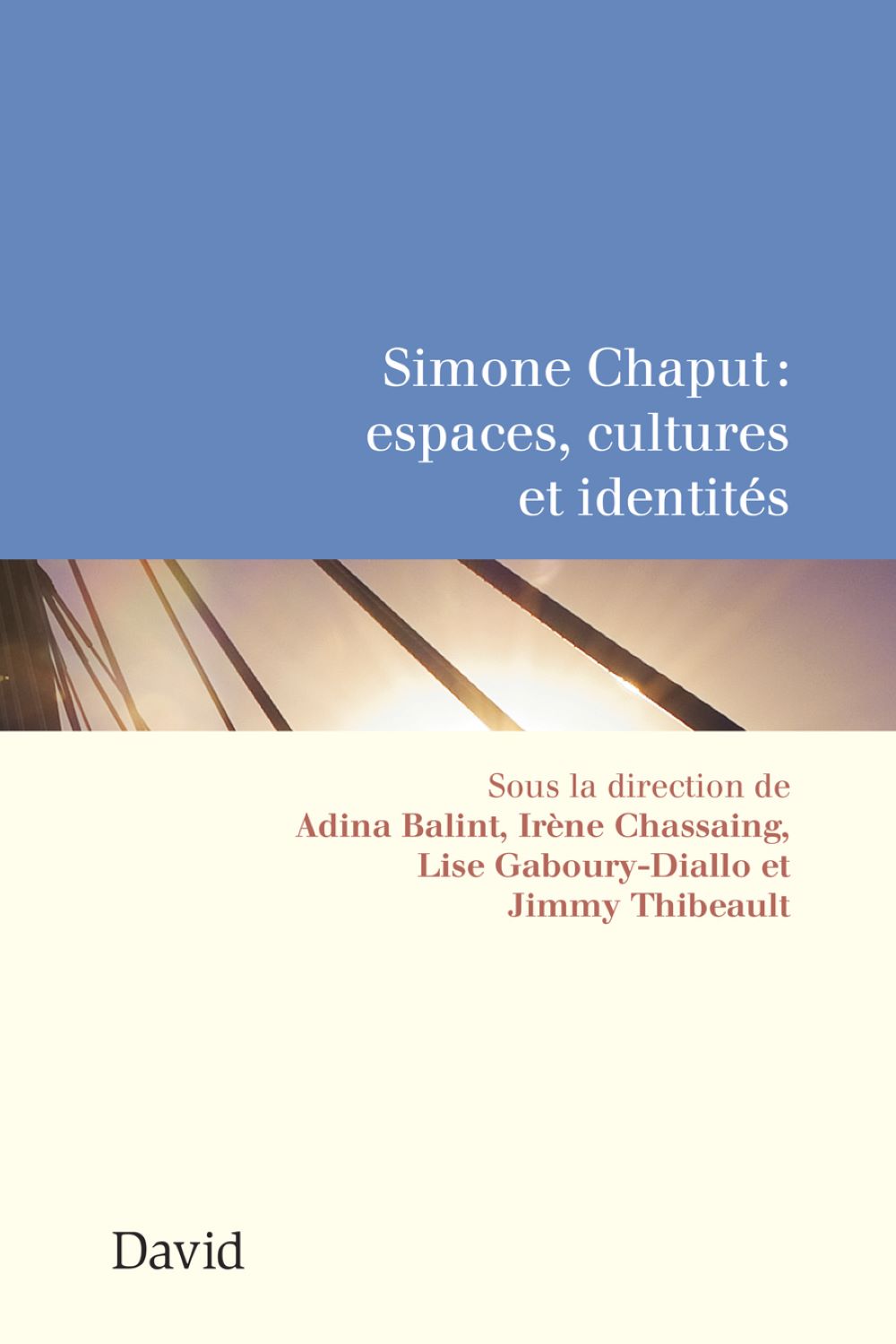
Since the publication of La vigne amère in 1989, Simone Chaput has established herself as an essential writer in Western Canada and, more broadly, in the Canadian Francophonie. Her body of work – which to date includes eleven novels and a collection of short stories – has earned her numerous literary prizes; paradoxically, her production still remains little studied outside of a fairly restricted circle of specialists in Franco-Manitoban literature. However, Chaput’s writings cannot be reduced to this geographical and cultural framework. Her characters are always mobile, open to interculturality, in search of otherness and, through it, of a definition of self in constant movement, which relates to a universal dimension.
These writings reflect the thematic and formal richness of Simone Chaput's literature by bringing together thirteen studies exploring the representation of various spaces, identities and cultures. These analyses are followed by a previously unpublished short story by Simone Chaput, an interview between the writer and Lise Gaboury-Diallo, as well as a critical bibliography.
February 8, 2024
Phryne: A Life in Fragments
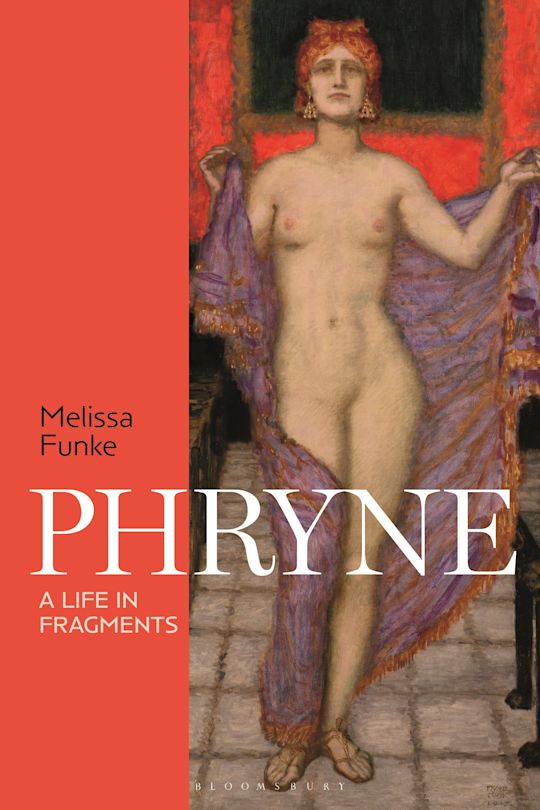
How did Mnesarete, a girl from Boeotia, turn into Phryne the famous beauty, and how did she end up as an enduring symbol of ancient Greek culture? This book pieces together the story of the notorious fourth-century Athenian sex worker, Phryne. It considers her early life and her development into a cultural figure, whose influence and legacy have lasted from her own lifetime to the present day. It also investigates her infamous nude courtroom appearance, her influence on one of the most well-known statues from antiquity and her connection to celebrated figures from Alexander the Great to the artist Apelles. Her appearances in modern culture, ranging from Belle Epoque cabaret shows to 1950s Italian film, are also analysed, offering an account of how the real life of a woman turned into the biography of a dream girl.
Nothing but fragments remain of Phryne's story, short anecdotes passed on and on again in literary compendia, that tell the story of a witty and beautiful woman who amassed great wealth, associated with some of the most well-known historical figures of ancient Greece. They create an image of a life that is glamorous and titillating, yet they also hint at the tenuous position of a foreign-born sex worker in a society structured to privilege male citizens above all others.
Visit the publisher's website for more information
January 11, 2024
Trolling Ourselves to Death: Democracy in the Age of Social Media
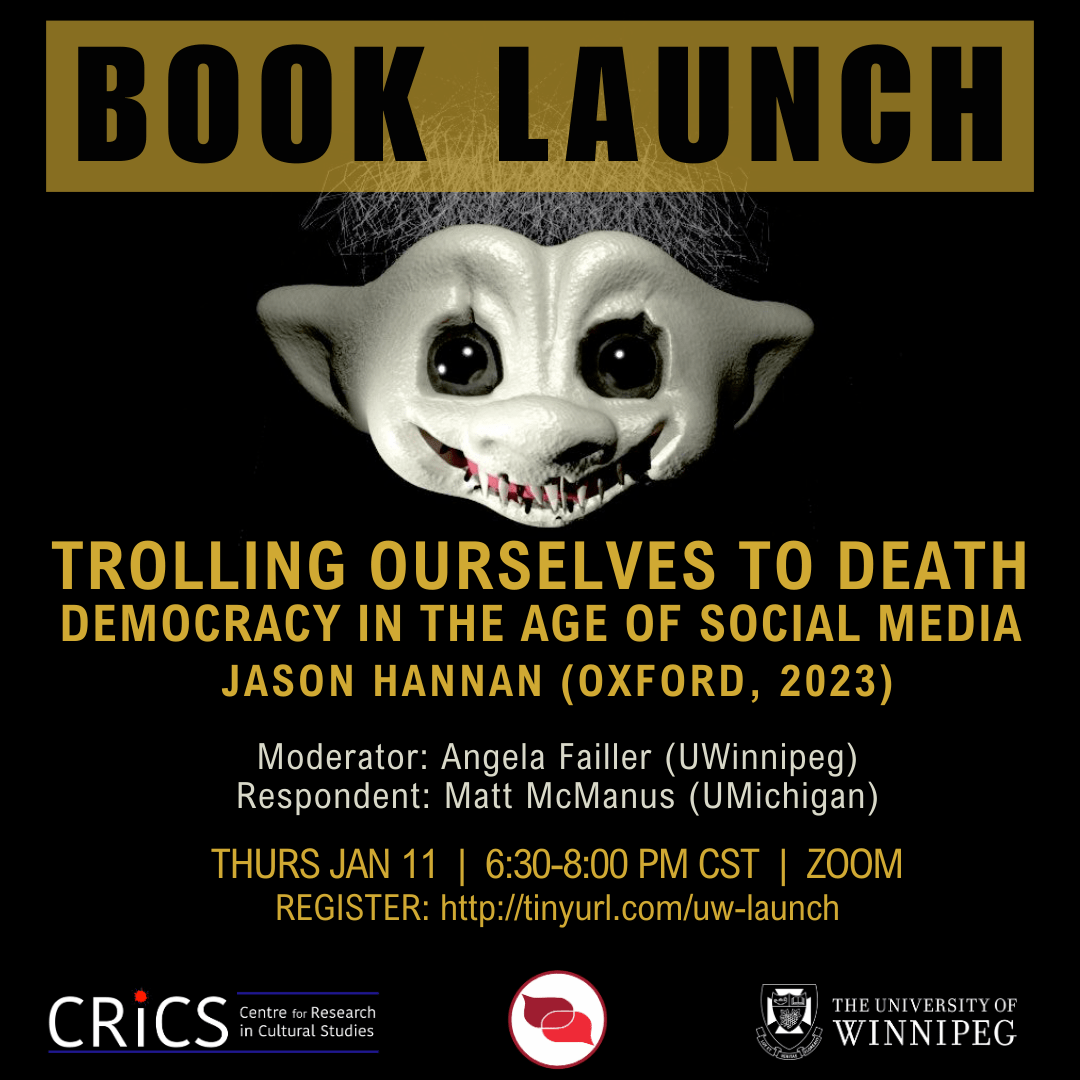
CRiCS member, Dr. Jason Hannan recently released his new book Trolling Ourselves to Death: Democracy in the Age of Social Media (Oxford University Press, 2023).
Here is a description from Oxford University Press:
"Almost forty years ago, Neil Postman argued that television had brought about a fundamental transformation to democracy. By turning entertainment into our supreme ideology, television had recreated public discourse in its image and converted democracy into show business. In Trolling Ourselves to Death, Jason Hannan builds on Postman's classic thesis, arguing that we are now not so much amusing, as trolling ourselves to death. Yet, how do we explain this profound change? What are the primary drivers behind the deterioration of civic culture and the toxification of public discourse?
Trolling Ourselves to Death moves beyond the familiar picture of trolling by recasting it in a broader historical light. Contrary to the popular view of the troll as an exclusively anonymous online prankster who hides behind a clever avatar and screen name, Hannan asserts that trolls have emerged from the cave, so to speak, and now walk in the clear light of day. Trolls now include politicians, performers, patriots, and protesters. What was once a mysterious phenomenon limited to the darker corners of the Internet has since gone mainstream, eroding our public culture and changing the rules of democratic politics.
Hannan shows how trolling is the logical outcome of a culture of possessive individualism, widespread alienation, mass distrust, and rampant paranoia. Synthesizing media ecology with historical materialism, he explores the disturbing rise of political unreason in the form of mass trolling and sheds light on the proliferation of disinformation, conspiracy theory, "cancel culture," and digital violence. Taking inspiration from Robert Brandom's innovative reading of Georg Wilhelm Friedrich Hegel, Trolling Ourselves to Death makes a case for building "a spirit of trust" to curb the epidemic of mass distrust that feeds the plague of political trolling."
Read more about the book and launch here.
September 20, 2023
"'Have You Seen Death Singing': Patti Smith’s Haunted Imaginary"
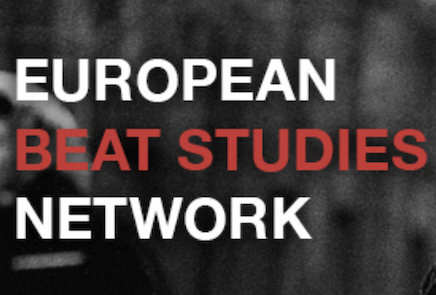 CRiCS student member Vincent Tinguely recently wrote an article titled "'Have You Seen Death Singing': Patti Smith's Haunted Imaginary," which was published by European Beat Studies Network.
CRiCS student member Vincent Tinguely recently wrote an article titled "'Have You Seen Death Singing': Patti Smith's Haunted Imaginary," which was published by European Beat Studies Network.
Read the full article.
August 8, 2023
"Freedom and Alienation; Or, Humanism of the Non-All"
 CRiCS member Matthew Flisfeder recently published an article titled "Freedom and Alienation; Or, Humanism of the Non-All." It can be found in Problemi International. Problemi International, established in 1962, is published by the Society for Theoretical Psychoanalysis in Ljubljana, Slovenia.
CRiCS member Matthew Flisfeder recently published an article titled "Freedom and Alienation; Or, Humanism of the Non-All." It can be found in Problemi International. Problemi International, established in 1962, is published by the Society for Theoretical Psychoanalysis in Ljubljana, Slovenia.
Here is an abstract for the article:
Today, the popular concept of the Anthropocene, used to denote the human geological age, puts to question the centrality of human subjectivity as an ethical agency. Critical posthumanism, in this context, demands the de-centring of the human subject, which in its apparently hubristic disregard for the non-human, seems to have set the world on fire. But what if the human subject is already constitutively de-centred and self-alienated? What purpose is served by aiming to de-centre the already de-centred subject? Beginning with Freudian and Marxist conceptions of a social humanity, this article ties together Hegelian and Lacanian conceptions of ontological incompleteness to argue that it is precisely in our constitutive alienation that we discover the freedom required for ethical action. In contrast to posthumanist and Marxist humanist conceptions of subjectivity, the article shows that it is precisely in the movement from the hysterical discourse to the analytical discourse, in the Lacanian sense, and with it the Hegelian conception of love, that we may discover a dialectical humanism capable of helping us to grapple with the material conditions that plague us today.
Read the full article.
May 23, 2023
Memorial Reckoning and the Fall of Imperial Icons
 Several CRiCS members came together to create a special issue of Global Media Journal -- Canadian Edition on Memorial Reckoning and the Fall of Imperial Icons. It was co-edited by Angela Failler, Jason Hannan, and Sabrina Mark. And it features contributions from Tracy Whalen, Alyson Brickey, and Emma De Sousa.
Several CRiCS members came together to create a special issue of Global Media Journal -- Canadian Edition on Memorial Reckoning and the Fall of Imperial Icons. It was co-edited by Angela Failler, Jason Hannan, and Sabrina Mark. And it features contributions from Tracy Whalen, Alyson Brickey, and Emma De Sousa.
Here is a teaser:
Memorial Reckoning and the Fall of Imperial Icons invites us to think deeply about monuments and memorials as forms of communication media. What do monuments and memorials say or mean to the people that they stand among, and how do their messages change under social and political pressures? Through their examination of a diverse array of examples, the authors call for society to rethink our (mis)use of these public markers and how and what they represent. The essays present views of the history and the current state of monuments and memorial reckoning as well as prospective futures for how memorials and monuments will continue to evolve.
Read the full issue.
May 3, 2023
"Worldliness and Freedom in the Academy"
 CRiCS member Sam Popowich recently published "Worldliness and Freedom in the Academy" in Academe.
CRiCS member Sam Popowich recently published "Worldliness and Freedom in the Academy" in Academe.
Here is a teaser:
In the wake of the 2008 global financial crisis, a politics of right-wing “strongman populism” developed through the 2010 election of Viktor Orbán in Hungary, Vladimir Putin’s return to the Russian presidency in 2012, the election of Donald Trump in 2016, and the Brexit referendum of the same year, in which right-wing populists like Nigel Farage and future British prime minister Boris Johnson led the victorious “Leave” side. In this political climate, a new iteration of the perennial culture wars exploded in North America. The emboldened Right in the United States and Canada began flexing its muscles on library boards, in state and provincial legislatures, and on college and university campuses.
Read the full essay.
April 26, 2023
"From Posthumanist Anaesthetics to Promethean Dialectics: Further Considerations on the Category of the Hysterical Sublime"
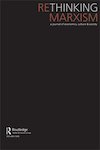 An article has recently been published by CRiCS member Matthew Flisfeder. It is titled "From Posthumanist Anaesthetics to Promethean Dialectics: Further Considerations on the Category of the Hysterical Sublime" and can be found in Rethinking Marxism: A Journal of Economics, Culture & Society.
An article has recently been published by CRiCS member Matthew Flisfeder. It is titled "From Posthumanist Anaesthetics to Promethean Dialectics: Further Considerations on the Category of the Hysterical Sublime" and can be found in Rethinking Marxism: A Journal of Economics, Culture & Society.
Here is an abstract for the article:
This essay proposes a critique of posthumanist critical theory through the development of the category of the hysterical sublime, a concept first introduced by Fredric Jameson in his early writings on postmodernism. While some critical posthumanist theories equate representationalism with a transcendental humanism, representation is inherent to the kinds of abstractions required in theory as such. Taking up the posthumanist resistance to anthropocentrism or human exceptionalism, the concept of the hysterical sublime—as opposed to the category of the modern sublime, regarding nature—is used to convey the way that posthumanism undermines its own ethical injunctions by invoking fatalistic representations of human action. Instead, this essay defends the return to dialectical humanism as an appropriate framework for thinking the rational and material conditions required for ethical human action.
Read the full article.
April 3, 2023
"There is no metalanguage; or, Truth has the structure of a fiction: The Žižekian system, between post-ideology and post-truth"
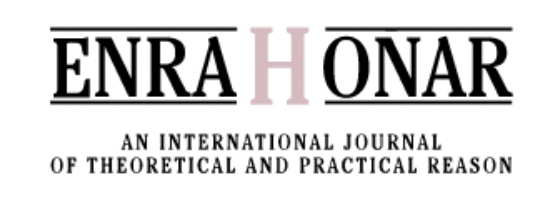 CRiCS member Matthew Flisfeder recently published "There is no metalanguage; or, Truth has the structure of a fiction: The Žižekian system, between post-ideology and post-truth" in Enrahonar. An International Journal of Theoretical and Practical Reason.
CRiCS member Matthew Flisfeder recently published "There is no metalanguage; or, Truth has the structure of a fiction: The Žižekian system, between post-ideology and post-truth" in Enrahonar. An International Journal of Theoretical and Practical Reason.
Here is an abstract:
This article examines Slavoj Žižek’s overall approach to the critique of ideology. His Hegelian-Lacanian approach to ideology criticism is addressed by looking at the histori-cal shift from the problem of post-ideology to that of post-Truth. In the process, this article explains simply Žižek’s brand of ideology criticism.
Read the full essay.
February 8, 2023
"Unsettling Homocolonial Frames of Remembrance: Two-Spirit and Indigiqueer Interventions at the Museum"
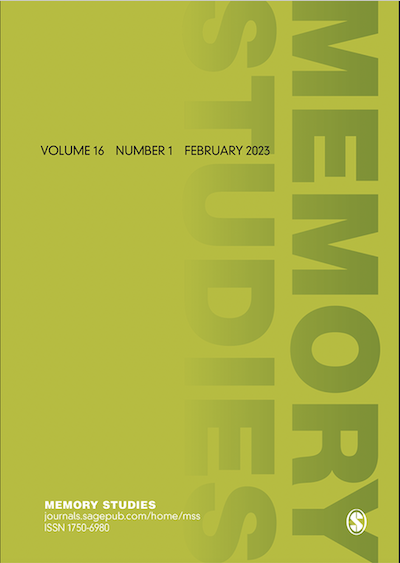 CRiCS Director Angela Failler recently published "Unsettling Homocolonial Frames of Remembrance: Two-Spirit and Indigiqueer Interventions at the Museum" in Memory Studies.
CRiCS Director Angela Failler recently published "Unsettling Homocolonial Frames of Remembrance: Two-Spirit and Indigiqueer Interventions at the Museum" in Memory Studies.
Here is an abstract:
This article considers a Two-Spirit and Indigiqueer protest at the Canadian Museum for Human Rights as a flashpoint that exposes problems with how memory-making institutions are incorporating lesbian, gay, bisexual, trans and queer issues into their programming and/or collections. The protest brings into relief the museum’s investment in a homocolonial framing of remembrance for the way in which the telling of lesbian, gay, bisexual, trans and queer ‘progress’ is entangled with a settler colonial political economy wherein the tokenistic inclusion of some queers into the sexual citizenry happens alongside the dispossession, devaluing and criminalizing of others. I then undertake some preliminary ‘curatorial dreaming’ upon two other interventions–commentaries uploaded to a digital story bank by a Two-Spirit and an Indigenous queer museumgoer, and the short film Woman Dress by Plains Cree artist TJ Cuthand. Along with the protest, the commentaries and the film unsettle homocolonial frames of remembrance and provide critical openings towards decolonial queer memory work at the museum.
Read the full essay.
February 1, 2023
"Platform Psychoanalysis"
 CRiCS member Matthew Flisfeder recently guest edited a special issue on "Platform Psychoanalysis" for CLCWeb: Comparative Literature and Culture.
CRiCS member Matthew Flisfeder recently guest edited a special issue on "Platform Psychoanalysis" for CLCWeb: Comparative Literature and Culture.
Here is an abstract for the special issue:
This Special Issue of CLCWeb: Comparative Literature and Culture on "Platform Psychoanalysis," Guest Edited by Matthew Flisfeder, asks how online, digital, and social media platforms relate to the subjectivizations of our culture and our society ideologically. The aim of this Special Issue is to add to the growing body of literature already dealing with the psychoanalytic interrogation of platforms. Contributors to this issue demonstrate the ways that psychoanalytic criticism offers a practice for critically interrogating algorithmic platform media. Each asks, in their own way, how platforms and algorithms play with and feed off our enjoyment and our desires, our fantasies, and our drives. Collectively, the contributors ask: what does the algorithm want?
Read the full issue and the introduction.
November 16, 2022
“Are We Human? Or, Posthumanism and the Subject of Modernity”
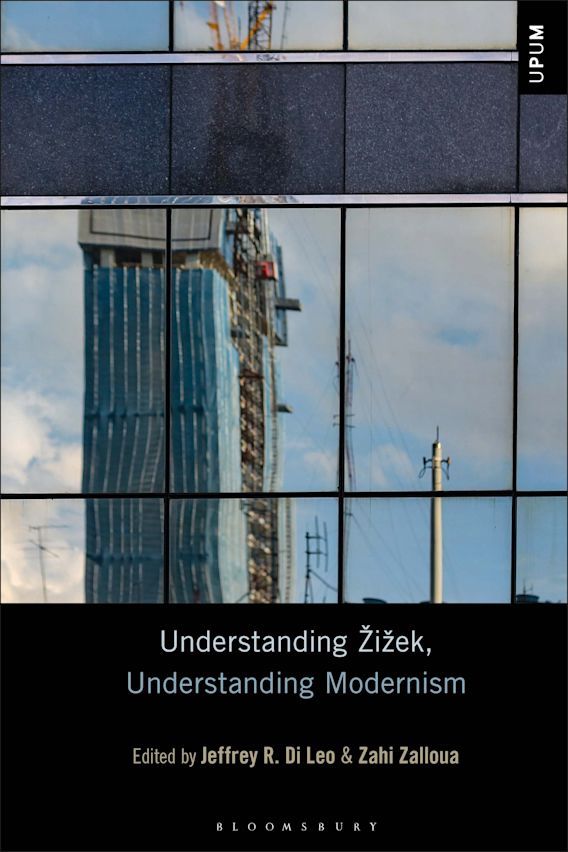 In Understanding Žižek, Understanding Modernism, edited by Jeffry R. Di Leo and Zahi Zalloua and published by Bloomsbury, CRiCS member Matthew Flisfeder published a chapter titled "Are We Human? Or, Posthumanism and the Subject of Modernity."
In Understanding Žižek, Understanding Modernism, edited by Jeffry R. Di Leo and Zahi Zalloua and published by Bloomsbury, CRiCS member Matthew Flisfeder published a chapter titled "Are We Human? Or, Posthumanism and the Subject of Modernity."
Here is a description of the book:
Slavoj Žižek is one of today's leading theorists, whose polemical works span topics from German idealism to Lacanian psychoanalysis, from Shakespeare to Beckett, and from Hitchcock to Lynch. Critical through and through of both post-modern ideological complacencies-e.g., the death of the subject and the return to ethics-and pre-modern ones-e.g., the re-enchantment of the world, the embrace of postcritique-Žižek doubles down on the virtues of the modern, on what it means to be modern, and to ask modern questions (about the subject, nature, and political economy) in the age of the Anthropocene.
This volume takes up the challenges laid out by Žižek's iconoclastic thinking and its reverberations in an array of fields: philosophy, psychoanalysis, political theory, literary studies, and film studies, among others. Žižek's multi-disciplinary appeal attests to the provocation, if not scandal, of his politically incorrect thought.
Understanding Žižek, Understanding Modernism makes the force and inventiveness of Žižek's writings accessible to a wide range of students and scholars invested in the open question of modernism and its legacies.
To learn more, visit the publisher's website.
November 14, 2022
"Whither Symbolic Efficiency? Social Media, New Structuralism, and Algorithmic Desire"
 Following a symposium on his book Algorithmic Desire: Toward a New Sturcturalist Theory of Social Media, CRiCS member Matthew Flisfeder recently published an article in response titled "Whither Symbolic Efficiency? Social Media, New Structuralism, and Algorithmic Desire" in Rethinking Marxism: A Journal of Economics, Culture & Society.
Following a symposium on his book Algorithmic Desire: Toward a New Sturcturalist Theory of Social Media, CRiCS member Matthew Flisfeder recently published an article in response titled "Whither Symbolic Efficiency? Social Media, New Structuralism, and Algorithmic Desire" in Rethinking Marxism: A Journal of Economics, Culture & Society.
Here is an abstract for the article:
Responding to the book symposium on his Algorithmic Desire: Toward a New Structuralist Theory of Social Media, Matthew Flisfeder engages with the thoughtful responses made by Clint Burnham, Jamil Khader, and Anna Kornbluh, expressing appreciation for the provocations and productive disagreements being generated. The author highlights previous work regarding the decline of symbolic efficiency, his intended meaning of algorithmic desire, and the implications of subjectivity in a social media age in which the subject is apparently aware of the big Other’s nonexistence. He reveals Algorithmic Desire as implicitly correcting for a critical- and cultural-theory landscape that has not fully absorbed the Slovenian school’s (Slavoj Žižek, Mladen Dolar, Alenka Zupančič) psychoanalytic interventions into the critique and development of Althusserian theories of ideology and subjectivity. The essay concludes that this methodology reveals the perverse nature of twenty-first-century neoliberal logic and reiterates that a truly social media is only possible under conditions of universal emancipation.
Read the full article and symposium articles.
October 21, 2022
Wilhelmsburg is our Home!
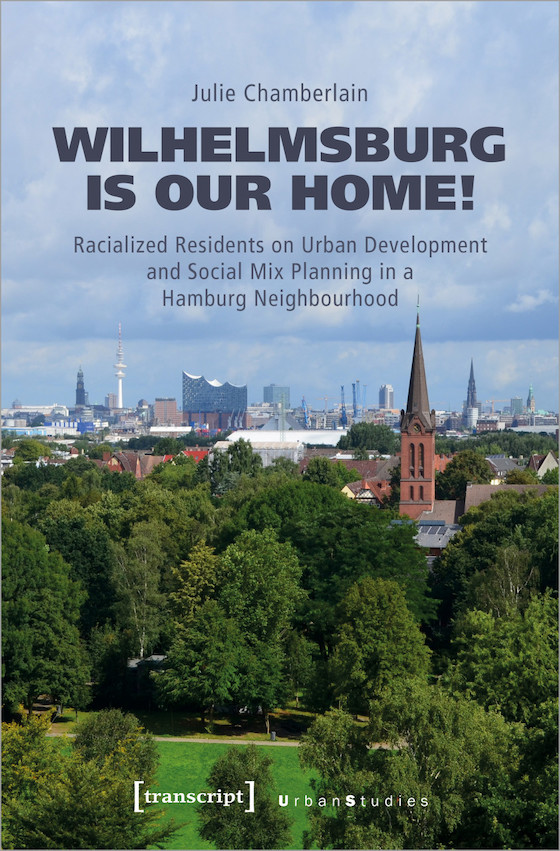 CRiCS member Julie Chamberlain has recently published the book Wilhelmsburg is our Home! Racialized Residents on Urban Development and Social Mix Planning in a Hamburg Neighbourhood with transcript.
CRiCS member Julie Chamberlain has recently published the book Wilhelmsburg is our Home! Racialized Residents on Urban Development and Social Mix Planning in a Hamburg Neighbourhood with transcript.
Here is a description of the book from the publisher's website:
In a neighbourhood facing massive redevelopment, racialized residents speak about stigma, social mixing, and what the island community means to them. Based on rich interviews, photographs, and archival research, Julie Chamberlain rejects the usual silence in German urban studies around racialization and examines how constructing some groups as »not belonging« has shaped Hamburg-Wilhelmsburg's past and present. For racialized long-time residents, it is Heimat, a space of belonging in the context of exclusion. As social mix policy threatens that belonging, residents explore their hopes and their fears for the future of an urban space where gentrification looms.
To learn more and read an interview with Julie, visit the publisher's website.
September 7, 2022
“Sex and Gender”
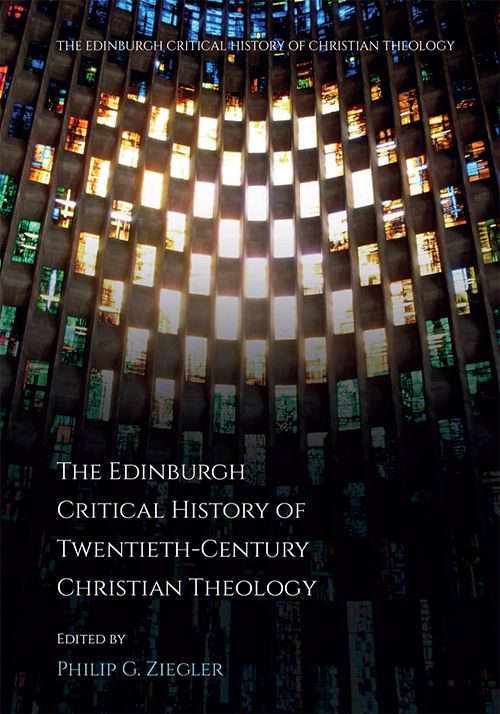 In The Edinburgh Critical History of Twentieth-Century Christian Theology, edited by Philip G. Ziegler and published by Edinburgh University Press, CRiCS member Jane Barter published a chapter titled "Sex and Gender." In his review, David Fergusson (University of Cambridge) writes, "A rich collection of essays from a distinguish cast, this volume provides a valuable introduction to key themes, movements, and thinkers in twentieth-century Christian theology, while also offering fresh commentary on the field today. It makes an admirable contribution to the series."
In The Edinburgh Critical History of Twentieth-Century Christian Theology, edited by Philip G. Ziegler and published by Edinburgh University Press, CRiCS member Jane Barter published a chapter titled "Sex and Gender." In his review, David Fergusson (University of Cambridge) writes, "A rich collection of essays from a distinguish cast, this volume provides a valuable introduction to key themes, movements, and thinkers in twentieth-century Christian theology, while also offering fresh commentary on the field today. It makes an admirable contribution to the series."
Here is a description of the book:
This volume re-examines the history of twentieth-century Christian theology by tracing key concepts, problems and themes as they develop in context with new perspectives opened up by contemporary theology itself.
The ambition is to illuminate the context, dynamism and complexities of its traditions and in doing so to offer a critical and creative ressourcement for contemporary theologians. The range of international contributors to this volume inquire afresh into the preoccupations, problems, provocations and prospects of Christian theology in the century just past to ask anew about just what in this recent history matters and why.
To learn more, visit the publisher's website.
June 20, 2022
"Local Dynamics and Electoral Transitions: Indigenous, Newcomer, and Mainstream Perspectives on Peace, Conflict, and Violence in Winnipeg, Manitoba"
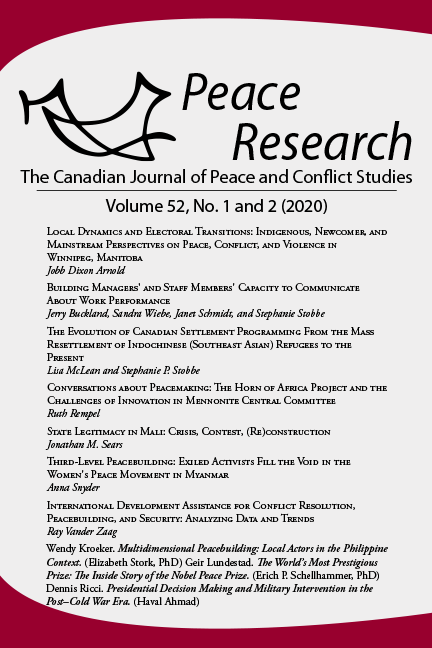 CRiCS member Jobb Arnold recently published an article titled "Local Dynamics and Electoral Transitions: Indigenous, Newcomer, and Mainstream Perspectives on Peace, Conflict, and Violence in Winnipeg, Manitoba" in The Canadian Journal of Peace and Conflict Studies.
CRiCS member Jobb Arnold recently published an article titled "Local Dynamics and Electoral Transitions: Indigenous, Newcomer, and Mainstream Perspectives on Peace, Conflict, and Violence in Winnipeg, Manitoba" in The Canadian Journal of Peace and Conflict Studies.
Here is an abstract for the article:
This article presents findings from research interviews and participatory action research carried out with Indigenous, Newcomer, and Mainstream community organizers from Winnipeg, Manitoba, Canada (Treaty 1 Territory). Thirty-eight research interviews were conducted prior to and following the 2015 Canadian federal election. This period of social and political intensification surfaced key social issues and demonstrated different perspectives held among members of three broad-based community populations. While many of the issues raised were framed in relation to the Canadian elections, interviews provided perspectives into the complex and pressing nature of issues that impact inter-community relations on a day-to-day basis. Key themes from the interviews include settler-colonialism, immigration and resettlement, poverty, land, violence and addictions, as well as the central role of online community networks. These dynamics are discussed in relation to both local and national processes connected to peace and conflict using three major theoretical frameworks: Curle and Dugan’s progression of conflict model, Sherif and Sherif’s realistic conflict theory, and Lewin’s field theory approach.
Read the full article.
April 11, 2022
“David Cronenberg (1942–)”
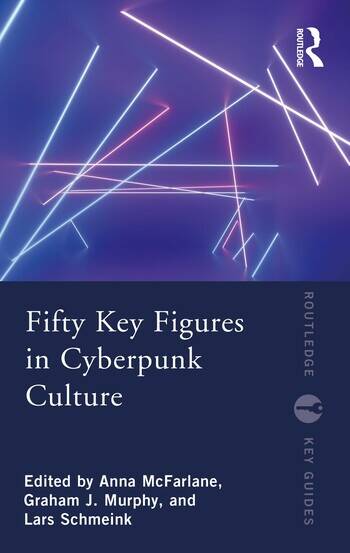 In Fifty Key Figures in Cyberpunk Culture, edited by Anna McFarlane, Graham J. Murphy, and Lars Schmeink and published by Routledge, CRiCS member Matthew Flisfeder published a chapter titled "David Cronenberg (1942-)." Hugh Charles O'Connell's (University of Massachusetts Boston) review states, "The entries gathered here reveal cyberpunk to be a key cultural formation for investigating the racial, class, gender, and sexual intersections of our increasingly techno-saturated late capitalist present."
In Fifty Key Figures in Cyberpunk Culture, edited by Anna McFarlane, Graham J. Murphy, and Lars Schmeink and published by Routledge, CRiCS member Matthew Flisfeder published a chapter titled "David Cronenberg (1942-)." Hugh Charles O'Connell's (University of Massachusetts Boston) review states, "The entries gathered here reveal cyberpunk to be a key cultural formation for investigating the racial, class, gender, and sexual intersections of our increasingly techno-saturated late capitalist present."
Here is an abstract of the chapter:
David Cronenberg is recognized globally as an iconic Canadian filmmaker and sometimes actor, and his self-reflexive attitude toward the film and media industries comes across and is portrayed in such foundational cyberpunk films as Videodrome (1983) and eXistenZ (1999) where he demonstrates an awareness of the conditions of power and control in production. These are themes evoked generally in cyberpunk culture, of which Cronenberg is deemed to be an early pioneer thanks to Videodrome, a film that (along with the later eXistenZ) portrays the materiality of the body immersed in new media spaces, and planes of corporate control. Specifically, Cronenberg portrays the business models of media systems and cultural industries embedded in the urban and commercial landscapes of late-twentieth-century capitalism. In essence, while cyberpunk often relies upon the metaphor of fluid and mutable bodies surfing virtual realities and fulfilling cyberspatial fantasies, Cronenberg’s films show technologies mediating our reflections about embodiment. Thus, the themes of bodily invasion and loss of control that permeate his visual worlds address the mutual evolution and the hybridity of the human-machine, which mark his distinct appeal for cyberpunk culture.
To learn more, visit the publisher's website.
January 24, 2022
"Renewing Humanism Against the Anthropocene: Towards a Theory of the Hysterical Sublime"
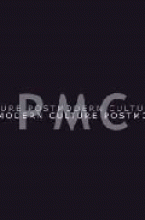 CRiCS member Matthew Flisfeder recently published an article titled "Renewing Humanism Against the Anthropocene: Towards a Theory of the Hysterical Sublime" in Postmodern Culture.
CRiCS member Matthew Flisfeder recently published an article titled "Renewing Humanism Against the Anthropocene: Towards a Theory of the Hysterical Sublime" in Postmodern Culture.
Here is an abstract for the article:
This article puts to question performative contradictions in theories developing a resistance to anthropocentrism in the context of rising interest in the Anthropocene narrative and Posthumanist theories seeking to evade human exceptionalism. By developing the aesthetic category of the hysterical sublime—a term first coined by Fredric Jameson in his early writing on postmodernism—this article challenges theoretical attempts to resist anthropocentrism and, instead, proposes a renewed conception of a universal and dialectical humanism as a methodological and ethical framework for grappling with contemporary crises such as climate change and the rise of digital automation.
Read the full article.
December 20, 2021
"Curatorial Omissions in Virtual War Museum Displays: Uncovering Racial and Gendered Tensions in Canadian WWI Exhibitions," "Representations of Surveillance and Perceptual Technologies at Military Museums," and "Military, meaning, and tactical myopia: representations of weapons at the Royal Canadian Artillery Museum"
CRiCS member Kevin Walby has recently written several articles with Haley Pauls.
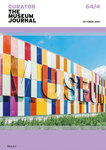 "Curatorial Omissions in Virtual War Museum Displays: Uncovering Racial and Gendered Tensions in Canadian WWI Exhibitions" was published in Curator: The Museum Journal. Here is the abstract for the article:
"Curatorial Omissions in Virtual War Museum Displays: Uncovering Racial and Gendered Tensions in Canadian WWI Exhibitions" was published in Curator: The Museum Journal. Here is the abstract for the article:
This paper investigates how virtual exhibitions curated by the Canadian War Museum (CWM) and the Canadian Centre for the Great War (CCGW) communicate ideas about nationalism and multiculturalism in Canada. Drawing from critical literature on participatory museum spaces, multiculturalism, and hegemony, we examine how virtual war exhibitions, which attempt to create space for marginalized identities, may inadvertently reinforce hegemonic understandings of Canadian identity. Through our analysis of two case studies, we explore how digital curation, while offering visitors a sense of participation, may also sanitize resistant perspectives. This analysis allows us to examine present-day Canadian multiculturalism as it is communicated in digital museum curations, including its practice of including racialized others on a conditional basis, its weaponization of white feminist narratives, and its continued investments in the history of English and French Canada as universal. We thus examine the way Canadian nationalism re-makes itself, and how virtual curatorial techniques, which may seem more inclusive, can serve hegemonic ends. This study should be of interest to curators and designers working in digital contexts, as well as scholars studying multiculturalism as it is pictured in museums, media, and other cultural representations.
To learn more, visit the publisher's website.
 "Representations of Surveillance and Perceptual Technologies at Military Museums" was published in Surveillance & Society. Here is the article's abstract from the publisher's website:
"Representations of Surveillance and Perceptual Technologies at Military Museums" was published in Surveillance & Society. Here is the article's abstract from the publisher's website:
Drawing from fieldwork at military museums across Manitoba, Canada, we explore the objects and narratives used to curate museum displays featuring what Bousquet (2018) calls “military perception.” Using Bousquet’s categories of military perception to organize our analysis, we examine how these museums position scopes, sonars, camouflage, and other devices meant to create visibility or invisibility as aesthetic objects rather than as instruments enabling state violence. With a focus on curatorial strategies and the arrangement of objects at these museums, we explore how surveillance and camouflage displays are organized to minimize the harm that military interventions cause and align the affect of the viewer with the form of Canadian nationalism animating the museum and against “enemy” others and spaces, a process we refer to as encasement. In conclusion, we reflect on what our analysis adds to literature on military museums and representations of surveillance.
To learn more, visit the publisher's website.
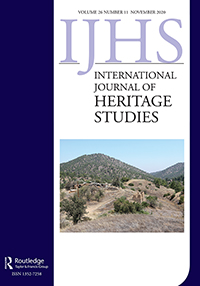 "Military, meaning, and tactical myopia: representations of weapons at the Royal Canadian Artillery Museum" was published in International Journal of Heritage Studies. Here is the article's abstract:
"Military, meaning, and tactical myopia: representations of weapons at the Royal Canadian Artillery Museum" was published in International Journal of Heritage Studies. Here is the article's abstract:
There are several military museums located across the prairie provinces of Canada that memorialise the country’s involvement in war. Drawing from fieldwork, we explore the representational devices used to curate military museum displays. Focusing on curatorial strategies and the arrangement of weapon objects at the Royal Canadian Artillery Museum (RCAM) located at Canadian Forces Base Shilo in Manitoba, we examine how gun displays are organised to minimise the harm and suffering that guns and military interventions cause. Contributing to critical heritage studies, we show how these museums position the gun as an aesthetic object rather than as an instrument of killing. Exploring the meaning and myths communicated at RCAM, we interpret how the arrangement of weapons at the site conveys a specific form of settler-colonial nationalism while at the same time sanitising these metal devices of carnage and bloodshed. Abstracting the gunner from the violence inherent in his duties, the museum fosters an empathetic connection between the visitor and the figure of the gunner, encouraging the visitor to experience gratitude rather than guilt. In conclusion, we reflect on what our analysis adds to literature on military museums and war heritage sites.
To learn more, visit the publisher's website.
December 16, 2021
Putting Home at the Heart of Refugee Resettlement
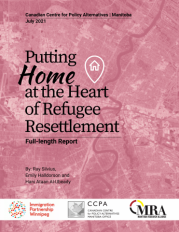 The report summary Putting Home at the Heart of Refugee Resettlement has been published by the Canadian Centre for Policy Alternatives. It is the culmination of a multi-year study by CRiCS member Ray Silvius, Emily Halldorson, and Hani Ataan Al-Ubeady that charts "the housing trajectories of former refugees," documenting their "challenges and successes [...] in obtaining adequate and affordable housing after arriving in Winnipeg."
The report summary Putting Home at the Heart of Refugee Resettlement has been published by the Canadian Centre for Policy Alternatives. It is the culmination of a multi-year study by CRiCS member Ray Silvius, Emily Halldorson, and Hani Ataan Al-Ubeady that charts "the housing trajectories of former refugees," documenting their "challenges and successes [...] in obtaining adequate and affordable housing after arriving in Winnipeg."
Here is the book's description from the publisher's website:
The culmination of a 5-year study based on interviews with recently arrived former refugees finds that securing good housing is a key part of successful settlement. However, a tight rental housing market, insufficient financial support and limited supply of public housing means many are barely making ends meet, making resettlement challenging.
Putting Home at the Heart of Refugee Resettlement by Ray Silvius (University of Winnipeg), Emily Halldorson (Community Researcher) and Hani Ataan Al-Ubeady (Immigration Partnership Winnipeg) brings into focus to the need for adequate housing in Winnipeg and how it positively contributes to the multitude of settlement needs in the first years after arrival.
To learn more, visit the publisher's website.
December 1, 2021
“Object Oriented Subjectivity: Capitalism and Desire in Blade Runner 2049”
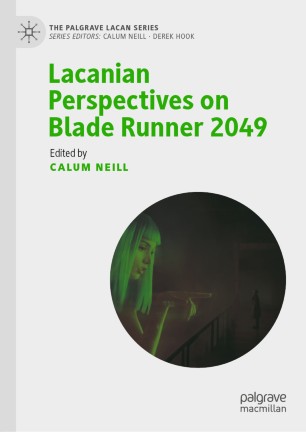 CRiCS member Matthew Flisfeder recently published a chapter titled "Object Oriented Subjectivity: Capitalism and Desire in Blade Runner 2049" in Lacanian Perspectives on Blade Runner 2049, edited by Calum Neill and published by Palgrave Macmillan as part of the Palgrave Lacan Series. This book is described by the publisher as forming "the vanguard of responses [to] Denis Villeneuve’s ‘Blade Runner 2049’ from a Lacanian perspective."
CRiCS member Matthew Flisfeder recently published a chapter titled "Object Oriented Subjectivity: Capitalism and Desire in Blade Runner 2049" in Lacanian Perspectives on Blade Runner 2049, edited by Calum Neill and published by Palgrave Macmillan as part of the Palgrave Lacan Series. This book is described by the publisher as forming "the vanguard of responses [to] Denis Villeneuve’s ‘Blade Runner 2049’ from a Lacanian perspective."
Here is an abstract of the chapter:
This essay examines Denis Villeneuve’s Blade Runner 2049 in the context of contemporary capitalism. It looks at the how the film challenges our conceptions of human subjectivity against the background of current anxieties about accelerated automation in production and the rising influence of algorithmic new media, as well as ongoing contradictions between capitalism and the state. With this in mind, this essay asks how the film subjectivizes our relationship to changing conditions of contemporary capitalism, and what it has to say about our relationship to fantasy, desire, and enjoyment in twenty-first century capitalism.
To learn more, visit the publisher's website.
November 30, 2021
“From the Sublime to the Hysterical Sublime: Reading the End of the World Against the Singularity”
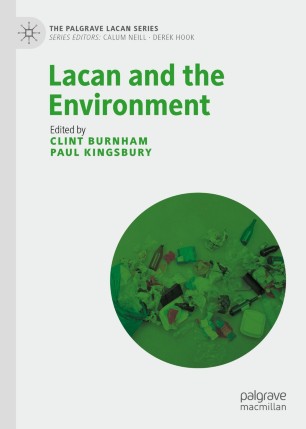 In the book, Lacan and the Environment, edited by Clint Burnham and Paul Kingsbury and part of The Palgrave Lacan Series published by Palgrave Macmillan, CRiCS member Matthew Flisfeder recently published a chapter titled "From the Sublime to the Hysterical Sublime: Reading the End of the World Against the Singularity." In his review of the book, Slavoj Žižek (University of Ljubljana, Slovenia, and International Director of the Birkbeck Institute for the Humanities, UK) states, “This outstanding volume throws a new light not only on Lacan but also on environmental issues: we cannot really understand ecology without taking into account all the fantasies that overdetermine our approach to this topic.”
In the book, Lacan and the Environment, edited by Clint Burnham and Paul Kingsbury and part of The Palgrave Lacan Series published by Palgrave Macmillan, CRiCS member Matthew Flisfeder recently published a chapter titled "From the Sublime to the Hysterical Sublime: Reading the End of the World Against the Singularity." In his review of the book, Slavoj Žižek (University of Ljubljana, Slovenia, and International Director of the Birkbeck Institute for the Humanities, UK) states, “This outstanding volume throws a new light not only on Lacan but also on environmental issues: we cannot really understand ecology without taking into account all the fantasies that overdetermine our approach to this topic.”
Here is an abstract of the chapter:
This chapter draws on Fredric Jameson’s concept of the hysterical sublime originally coined in his writing on postmodernism. Moving between the concept of the sublime in Kant and Hegel, as a way to approach the subject’s relation to nature and to reality, and the hysterical sublime, which relates the subject to products of its own making, such as technological objects and machinery, a Lacanian approach to the twin dilemmas of climate change and automation is proposed. Here, the role of the hysteric is leveraged as an agent central to the production of knowledge. The hysteric’s discourse is posited as a medium for approaching the historical conjuncture that intersects the end of nature and the end of humanity.
To learn more, visit the publisher's website.
November 25, 2021
The Postcolonial African Genocide Novel
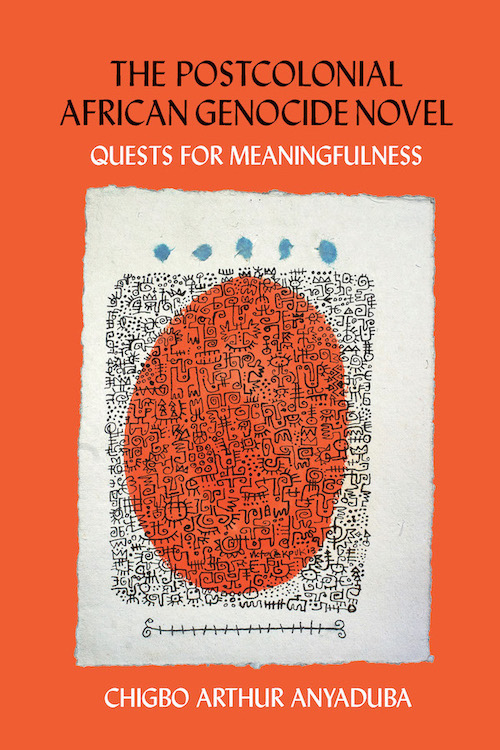 CRiCS member Chigbo Arthur Anyaduba has recently published the book The Postcolonial African Genocide Novel with Liverpool University Press. A review by Bryan Cheyette (Times Literary Supplement) calls it a "ground-breaking study" that "traces the fraught 'meanings' associated with genocide in Africa" and "is adept at teasing out these tensions and contradictions."
CRiCS member Chigbo Arthur Anyaduba has recently published the book The Postcolonial African Genocide Novel with Liverpool University Press. A review by Bryan Cheyette (Times Literary Supplement) calls it a "ground-breaking study" that "traces the fraught 'meanings' associated with genocide in Africa" and "is adept at teasing out these tensions and contradictions."
Here is a description of the book from the publisher's website:
In The Postcolonial African Genocide Novel, Chigbo Anyaduba examines fictional responses to mass atrocities occurring in postcolonial Africa. Through a comparative reading of novels responding to the genocides of the Igbo in Nigeria (1966-1970) and the Tutsi in Rwanda (1990-1994), the book underscores the ways that literary encounters with genocides in Africa’s postcolonies have attempted to reimagine the conditions giving rise to exterminatory forms of mass violence. The book concretizes and troubles one of the apparent truisms of genocide studies, especially in the context of imaginative literature: that the reality of genocide more often than not resists meaningfulness. Particularly given the centrality of this truism to artistic responses to the Holocaust and to genocides more generally, Anyaduba tracks the astonishing range of meanings drawn by writers at a series of (temporal, spatial, historical, cultural and other) removes from the realities of genocide in Africa’s postcolonies, a set of meanings that are often highly‐specific and irreducible to maxims or foundational cases. The book shows that in the artistic projects to construct meanings against genocide’s nihilism writers of African genocides deploy tropes that while significantly oriented to African concerns are equally shaped by the representational conventions and practices associated with the legacies of the Holocaust.
To learn more, visit the publisher's website.
April 23, 2021
“The Circuitry of Grief: Queer Time, Killjoy Politics, and Mourning in Sina Queyras’s MxT”
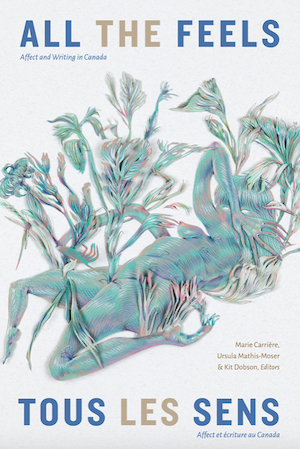 Published in the book, All the Feels / Tous les sens: Affect and Writing in Canada / Affect et écriture au Canada, CRiCS member Heather Milne recently published a chapter titled "The Circuitry of Grief: Queer Time, Killjoy Politics, and Mourning in Sina Queyras’s MxT." In her review of the book, Roxanne Rimstead (Professor, Comparative Canadian Literature, Université de Sherbrooke) stated that “The contributors show the complexity of affect and its social importance and break down assumptions about the separateness of mind and body, private and public, individual and communal. They also offer a welcome fusion of engaged theories that politicize the readings through queer, feminist, anti-capitalist, posthuman, and Indigenous perspectives.”
Published in the book, All the Feels / Tous les sens: Affect and Writing in Canada / Affect et écriture au Canada, CRiCS member Heather Milne recently published a chapter titled "The Circuitry of Grief: Queer Time, Killjoy Politics, and Mourning in Sina Queyras’s MxT." In her review of the book, Roxanne Rimstead (Professor, Comparative Canadian Literature, Université de Sherbrooke) stated that “The contributors show the complexity of affect and its social importance and break down assumptions about the separateness of mind and body, private and public, individual and communal. They also offer a welcome fusion of engaged theories that politicize the readings through queer, feminist, anti-capitalist, posthuman, and Indigenous perspectives.”
In lieu of an abstract of Heather Milne's chapter, here is an overview of the book:
All the Feels / Tous les sens presents research into emotion and cognition in Canadian, Indigenous, and Québécois writings in English or French. Affect is both internal and external, private and public; with its fluid boundaries, it represents a productive dimension for literary analysis. The emerging field of affect studies makes vital claims about ethical impulses, social justice, and critical resistance, and thus much is at stake when we adopt affective reading practices. The contributors ask what we can learn from reading contemporary literatures through this lens. Unique and timely, readable and teachable, this collection is a welcome resource for scholars of literature, feminism, philosophy, and transnational studies as well as anyone who yearns to imagine the world differently.
To learn more, visit the publisher's website.
April 1, 2021
“Speaking About her just Might Heal”: Witnessing to Canada’s Missing and Murdered Indigenous Women
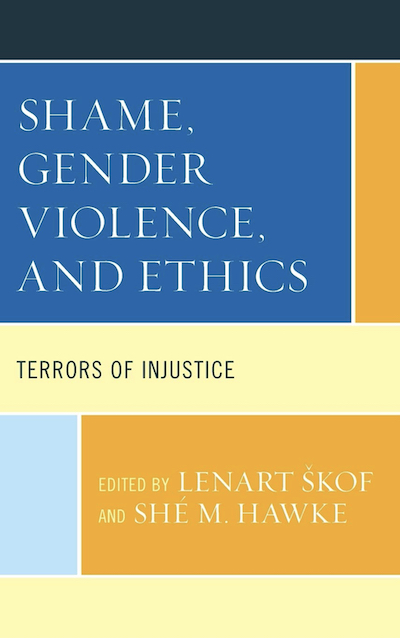 CRiCS member Jane Barter has recently published a chapter in Shame, Gender Violence, and Ethics: Terrors of Injustice, edited by Lenart Škof and Shé M. Hawke. The chapter is titled, "'Speaking About her just Might Heal': Witnessing to Canada’s Missing and Murdered Indigenous Women." In a review by Kelly Oliver (Vanderbilt University), she notes that "This important volume brings together diverse textual testimonies of gendered violence from voices less often heard within the academy. These essays powerfully expose and analyze the intersections of gender, shame, violence, and injustice and the systematic use of gendered terror to enforce the subordination of women across the globe. This book is a must-read for anyone concerned about global gender justice."
CRiCS member Jane Barter has recently published a chapter in Shame, Gender Violence, and Ethics: Terrors of Injustice, edited by Lenart Škof and Shé M. Hawke. The chapter is titled, "'Speaking About her just Might Heal': Witnessing to Canada’s Missing and Murdered Indigenous Women." In a review by Kelly Oliver (Vanderbilt University), she notes that "This important volume brings together diverse textual testimonies of gendered violence from voices less often heard within the academy. These essays powerfully expose and analyze the intersections of gender, shame, violence, and injustice and the systematic use of gendered terror to enforce the subordination of women across the globe. This book is a must-read for anyone concerned about global gender justice."
In lieu of an abstract for this specific chapter, here is a description of the book from the publisher's website:
Shame, Gender Violence, and Ethics: Terrors of Injustice draws from contemporary, concrete atrocities against women and marginalized communities to re-conceptualize moral shame and to set moral shame apart from dimensions of subordination, humiliation, and disgrace. The interdisciplinary collection starts with a contribution from a Yazidi-survivor of genocidal and sexual violence, whose case brings together core themes: gender, ethnic and religious identity, and violence and shame. Further accounts of shame and gendered violence in this collection take the reader to other and equally disturbing accounts of lesser-known atrocities from around the world. Although shame is sometimes posited as an inevitable companion to human life, editors Lenart Škof and Shé M. Hawke situate the discussion in the theoretical landscape of shame, and the contributors challenge this concept through fields as diverse as law, journalism, activism, philosophy, theology, ecofeminism, and gender and cultural studies. Their discussion of gendered shame makes room for it to be both a negative and a redemptive concept. Combining junior and senior scholarship, this collection examines power relations in the cycle of shame and violence.
To learn more, visit the publisher's website.
March 23, 2021
Algorithmic Desire: Toward a New Structuralist Theory of Social Media
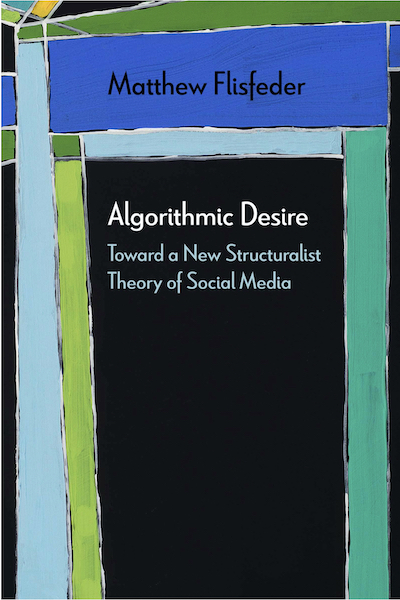 CRiCS member Matthew Flisfeder has recently published the book, Algorithmic Desire: Toward a New Structuralist Theory of Social Media, with Northwestern University Press. The book has received praise from a number of academics in the field, including the following note from Geert Lovink: “Algorithmic Desire is not theorizing some trivial TikTok influencers. The internet does not merely transport news, selfies, and emojis; it embodies a new totality. Flisfeder takes us on a voyage around his library, investigating social media as a transcending historical force. His conclusion: the revolution will not be a trending topic.”
CRiCS member Matthew Flisfeder has recently published the book, Algorithmic Desire: Toward a New Structuralist Theory of Social Media, with Northwestern University Press. The book has received praise from a number of academics in the field, including the following note from Geert Lovink: “Algorithmic Desire is not theorizing some trivial TikTok influencers. The internet does not merely transport news, selfies, and emojis; it embodies a new totality. Flisfeder takes us on a voyage around his library, investigating social media as a transcending historical force. His conclusion: the revolution will not be a trending topic.”
Here is the book's description on the publisher's website:
In Algorithmic Desire, Matthew Flisfeder shows that social media is a metaphor that reveals the dominant form of contemporary ideology: neoliberal capitalism. The preeminent medium of our time, social media’s digital platform and algorithmic logic shape our experience of democracy, enjoyment, and desire. Weaving between critical theory and analyses of popular culture, Flisfeder uses examples from The King’s Speech, Black Mirror, Gone Girl, The Circle, and Arrival to argue that social media highlights the antisocial dimensions of twenty-first-century capitalism. He counters leading critical theories of social media—such as new materialism and accelerationism—and thinkers such as Gilles Deleuze and Michel Foucault, proposing instead a new structuralist account of the ideology and metaphor of social media. Emphasizing the structural role of crises, gaps, and negativity as central to our experiences of reality, Flisfeder interprets the social media metaphor through a combination of dialectical, Marxist, and Lacanian frameworks to show that algorithms may indeed read our desire, but capitalism, not social media, truly makes us antisocial. Wholly original in its interdisciplinary approach to social media and ideology, Flisfeder’s conception of “algorithmic desire” is timely, intriguing, and sure to inspire debate.
To learn more, visit the publisher's website.
December 1, 2020
"Whitman's First-Person Plural"

Published in volume 38, issue 2 of Walt Whitman Quarterly Review, Alyson Brickey's "Whitman's First-Person Plural" has been made available free and open access by Iowa Research Online. In lieu of an abstract, here is the article's first paragraph:
In his 1855 poem that he continually reworked for twenty-five years and eventually titled “Song of Myself,” Walt Whitman pulsates between the singular and the plural, reflecting on both the single “spear of summer grass” and the vast, multitudinous “journey-work of the stars.”1 The poet constantly toys with the distinction between the one and the many in this text, which has become one of the most quintessential of American poems. This is partially achieved through his experimentation with poetic lists. His penchant for catalogues, especially in Leaves of Grass, has both fascinated and frustrated readers since its initial publication. Upon reading the collection for the first time, Ralph Waldo Emerson famously wrote, “I expected—him—to make—the songs of the Nation—but he seems—to be contented to—make the inventories,”2 and in 1896 John Burroughs called the poem “a series of ejaculations, utterances, apostrophes, enumerations . . . with little or no structural or logical connection” (Miller xix). Were it not for the “intimate sense of the man back of all,” Burroughs exclaimed, “the piece would be wild and inchoate” (Miller xix). Whitman himself acknowledged that “it is the catalogue business that wrecks them all—that hauls them up short, that determines their opposition. They shudder at it” (Miller 145). Despite the sometimes negative associations with the poem’s catalogue form, more than one third of “Song of Myself” is made up of lists, displaying a steadfast aesthetic commitment to what can often feel an excess of enumeration.
Read the full article.
October 20, 2020
Strangers to Neighbours: Refugee Sponsorship in Context
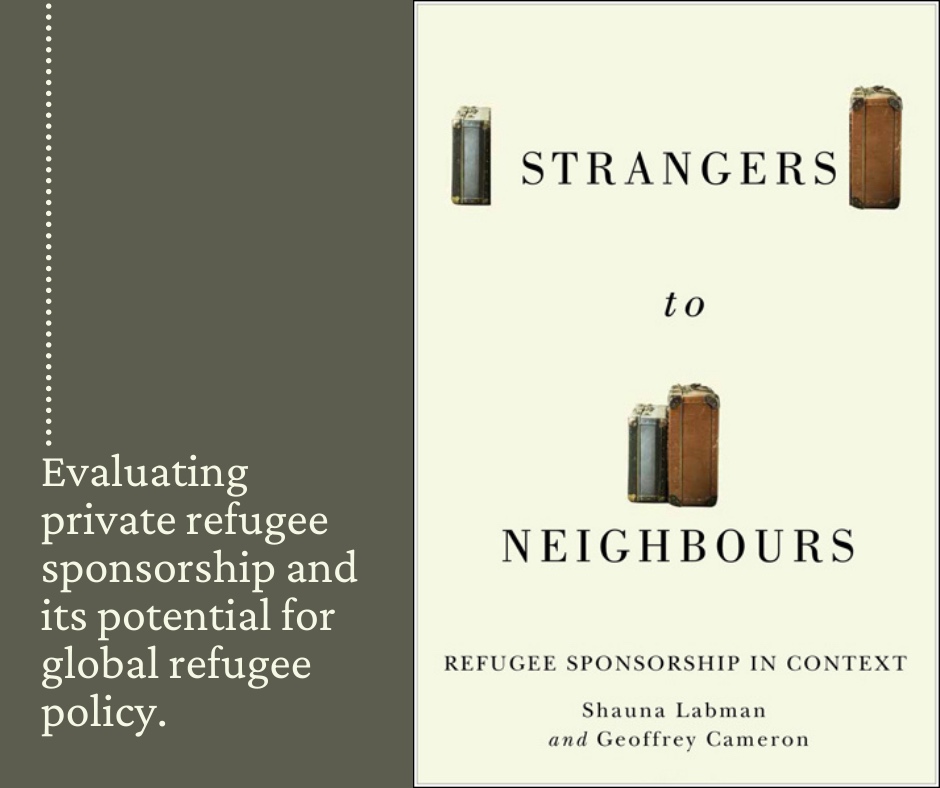 The anthology, Strangers to Neighbours: Refugee Sponsorship in Context has recently been published by McGill-Queen's University Press as part of the Refugee and Forced Migration Studies Series. Co-edited by CRiCS member Shauna Labman with her colleague Geoffrey Cameron, this edited collection features four sections and fifteen chapters on the theme of refugees in Canada.
The anthology, Strangers to Neighbours: Refugee Sponsorship in Context has recently been published by McGill-Queen's University Press as part of the Refugee and Forced Migration Studies Series. Co-edited by CRiCS member Shauna Labman with her colleague Geoffrey Cameron, this edited collection features four sections and fifteen chapters on the theme of refugees in Canada.
Here is the book's description from the publisher's website:
As a leading country in global refugee resettlement, Canada operates a unique program that allows private groups and individuals to sponsor refugees. This innovative approach has received growing international attention, but there remains a need for a more expansive understanding of the sponsorship framework and its potential implications within Canada and across the world.
Strangers to Neighbours explains the origins and development of refugee sponsorship, paying particular attention to the unintended consequences and ethical dilemmas it produces for refugee policy. The contributors to this collection draw upon law, social science, and philosophy to bring a more robust and objective perspective on Canada's historical experience with sponsorship into wider conversations about the refugee crisis and resettlement. Together, they present recent cases that exemplify how the model has been applied and how it functions, while also analyzing the challenges that emerge in host-sponsor relations. This volume further examines how sponsorship has been implemented differently in countries such as the United States and Australia.
The first dedicated study of refugee sponsorship policy, Strangers to Neighbours assembles leading scholars from a range of disciplines to consider whether Canada's system is indeed a sustainable model for the world.
To learn more, visit the publisher's website.
October 14, 2020
Imaginaires et représentations littéraires de la mobilité
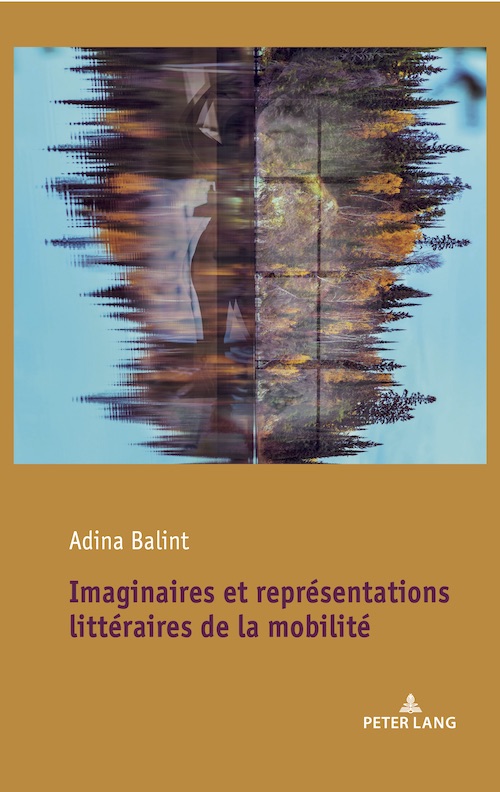 CRiCS member Adina Balint has recently published her monograph, Imaginaires et représentations littéraires de la mobilité, with publisher Peter Lang. The book asks the question: "What can contemporary French-speaking literature (Canada and France) teach us about the experience of mobility as a creative journey oriented towards the transcultural?"
CRiCS member Adina Balint has recently published her monograph, Imaginaires et représentations littéraires de la mobilité, with publisher Peter Lang. The book asks the question: "What can contemporary French-speaking literature (Canada and France) teach us about the experience of mobility as a creative journey oriented towards the transcultural?"
Here is the book description on the publisher's website:
Qu’est-ce que la littérature contemporaine d’expression française (Canada et France) peut nous apprendre de l’expérience de la mobilité comme parcours créateur orienté vers le transculturel?
Inspirée par les théories du mobility turn de John Urry et par la notion de nomadisme de Rosi Braidotti et de Gilles Deleuze et Félix Guattari, Adina Balint réfléchit aux rapports entre les frontières identitaires, spatiales et poétiques qui produisent de nouvelles figures d’appartenance. Cet ouvrage dont la réflexion se situe à la croisée des études littéraires, des études comparatistes et transculturelles explore des similitudes et différences entre les modes de représentation de la mobilité (géographique, des individus, des imaginaires) et la mise en tension entre le sujet littéraire, le territoire et la communauté chez Anaïs Barbeau-Lavalette, Simone Chaput, Sergio Kokis, Catherine Mavrikakis, Régine Robin, Maylis de Kerangal, J.M.G. Le Clézio et Andreï Makine. Il en ressort que la mobilité n’est pas une action achevée mais un processus inachevé/inachevable porteur d’une influence directe sur le devenir du personnage-narrateur/narratrice et de sa créativité.
For more information, visit the publisher's website.
October 5, 2020
Meatsplaining: The Animal Agriculture Industry and the Rhetoric of Denial
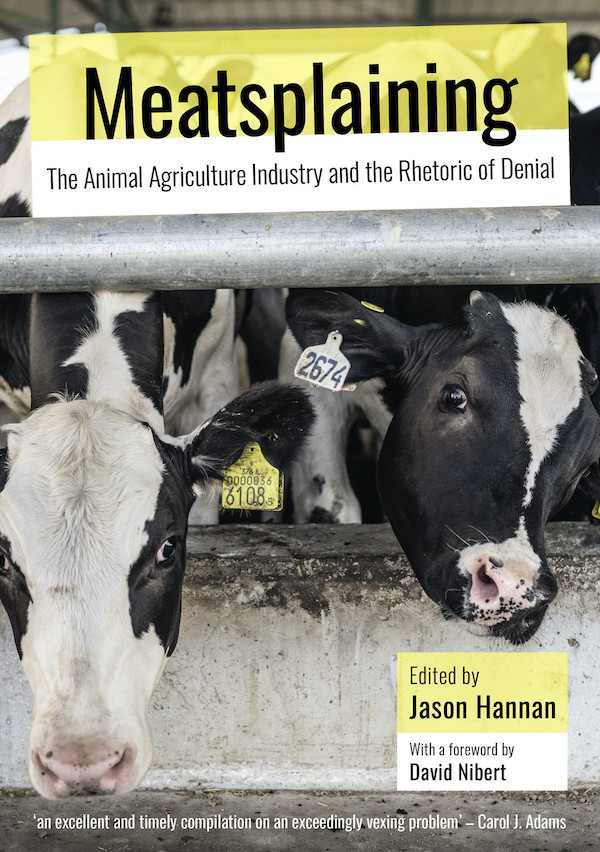 Sydney University Press has recently released its newly published anthology, Meatsplaining: The Animal Agriculture Industry and the Rhetoric of Denial, edited by CRiCS Member Jason Hannan. Lauded as "powerful, timely and essential," and described by author Marc Bekoff as "the first book to give an apt name to the animal agriculture industry’s relentless campaign of disinformation and denialism," this book features eleven chapters that seek to educate the public about (the horrors of) animal agriculture.
Sydney University Press has recently released its newly published anthology, Meatsplaining: The Animal Agriculture Industry and the Rhetoric of Denial, edited by CRiCS Member Jason Hannan. Lauded as "powerful, timely and essential," and described by author Marc Bekoff as "the first book to give an apt name to the animal agriculture industry’s relentless campaign of disinformation and denialism," this book features eleven chapters that seek to educate the public about (the horrors of) animal agriculture.
Here is the book's description from the publishers website:
The animal agriculture industry, like other profit-driven industries, aggressively seeks to shield itself from public scrutiny. To that end, it uses a distinct set of rhetorical strategies to deflect criticism. These tactics are fundamental to modern animal agriculture but have long evaded critical analysis. In this collection, academic and activist contributors investigate the many forms of denialism perpetuated by the animal agriculture industry. What strategies does the industry use to avoid questions about its inhumane treatment of animals and its impact on the environment and public health? What narratives, myths and fantasies does it promote to sustain its image in the public imagination?
For more information, visit the publisher's website.
September 29, 2020
Adoption and Multiculturalism: Europe, the Americas, and the Pacific
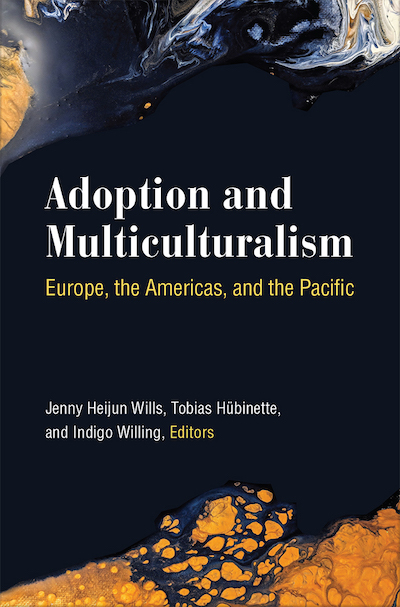 The anthology, Adoption and Multiculturalism: Europe, the Americas, and the Pacific, has recently been published by The University of Michigan Press. Co-edited by CRiCS member Jenny Heijun Wills, will colleagues Tobias Hübinette (Karlstad University) and Indigo Willing (Griffith University), has been praised as "An important and stimulating collection, with its attention to multiple contexts and ontologies, the combination of empirical and conceptual richness that marks almost every chapter, and the focus on adoptee experiences within circuits of language, culture, race, nation, and within unequal political economies and socio-histories” (Sarah Dorow, University of Alberta).
The anthology, Adoption and Multiculturalism: Europe, the Americas, and the Pacific, has recently been published by The University of Michigan Press. Co-edited by CRiCS member Jenny Heijun Wills, will colleagues Tobias Hübinette (Karlstad University) and Indigo Willing (Griffith University), has been praised as "An important and stimulating collection, with its attention to multiple contexts and ontologies, the combination of empirical and conceptual richness that marks almost every chapter, and the focus on adoptee experiences within circuits of language, culture, race, nation, and within unequal political economies and socio-histories” (Sarah Dorow, University of Alberta).
Here is a description of the book from the publisher's website:
Adoption and Multiculturalism features the voices of international scholars reflecting transnational and transracial adoption and its relationship to notions of multiculturalism. The essays trouble common understandings about who is being adopted, who is adopting, and where these acts are taking place, challenging in fascinating ways the tidy master narrative of saviorhood and the concept of a monolithic Western receiving nation. Too often the presumption is that the adoptive and receiving country is one that celebrates racial and ethnic diversity, thus making it superior to the conservative and insular places from which adoptees arrive. The volume’s contributors subvert the often simplistic ways that multiculturalism is linked to transnational and transracial adoption and reveal how troubling multiculturalism in fact can be.
The contributors represent a wide range of disciplines, cultures, and connections in relation to the adoption constellation, bringing perspectives from Europe (including Scandinavia), Canada, the United States, and Australia. The book brings together the various methodologies of literary criticism, history, anthropology, sociology, and cultural theory to demonstrate the multifarious and robust ways that adoption and multiculturalism might be studied and considered. Edited by three transnational and transracial adoptees, Adoption and Multiculturalism: Europe, the Americas, and the Pacific offers bold new scholarship that revises popular notions of transracial and transnational adoption as practice and phenomenon.
To learn more about this book, visit the publisher's website.
September 25, 2020
"The Old Law and the Missed Bus"
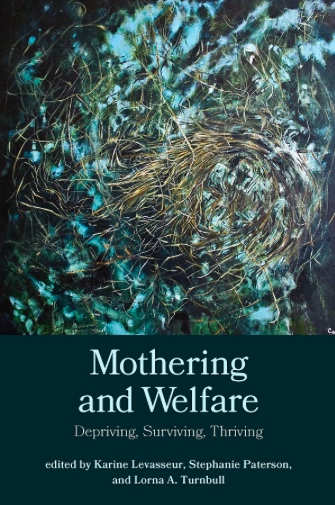 CRiCS member Shauna Labman has recently published a chapter titled "The Old Law and the Missed Bus" in the anthology Mothering and Welfare: Depriving, Surviving, Thriving, co-edited by Karine Levasseur, Stephanie Paterson, and Lorna A. Turnbull.
CRiCS member Shauna Labman has recently published a chapter titled "The Old Law and the Missed Bus" in the anthology Mothering and Welfare: Depriving, Surviving, Thriving, co-edited by Karine Levasseur, Stephanie Paterson, and Lorna A. Turnbull.
Here is how this book is described on the publisher's website:
This volume investigates the intersections of welfare, gender and mothering work in the current political climate. It explores austerity and the policies of neo-liberal governments that work to deprive some mothers of their welfare. This volume also considers how motherhood is socially constructed in various social locations and places around the world. Last, it examines different ways of thinking about mothering and what changes to laws and policies are required to assist all who are mothering and provide better support to their families.
To learn more about the book and Dr. Labman's chapter, visit the publisher's website.
September 22, 2020
Fairy-Tale TV
 CRiCS member Pauline Greenhill recently published a book titled Fairy-Tale TV, co-written with her colleague Jill Terry Rudy, as part of the Routledge Television Guidebooks series.
CRiCS member Pauline Greenhill recently published a book titled Fairy-Tale TV, co-written with her colleague Jill Terry Rudy, as part of the Routledge Television Guidebooks series.
The book is described as follows on Routledge's website:
"This concise and accessible critical introduction examines the world of popular fairy-tale television, tracing how fairy tales and their social and cultural implications manifest within series, television events, anthologies, and episodes, and as freestanding motifs.
Providing a model of televisual analysis, Rudy and Greenhill emphasize that fairy-tale longevity in general, and particularly on TV, results from malleability—morphing from extremely complex narratives to the simple quotation of a name (like Cinderella) or phrase (like "happily ever after")—as well as its perennial value as a form that is good to think with. The global reach and popularity of fairy tales is reflected in the book’s selection of diverse examples from genres such as political, lifestyle, reality, and science fiction TV.
With a select mediagraphy, discussion questions, and detailed bibliography for further study, this book is an ideal guide for students and scholars of television studies, popular culture, and media studies, as well as dedicated fairy-tale fans."
To learn more about this book, visit the publisher's website.
September 8, 2020
"The House and the Infected Body: The Metonymy of Resident Evil 7"
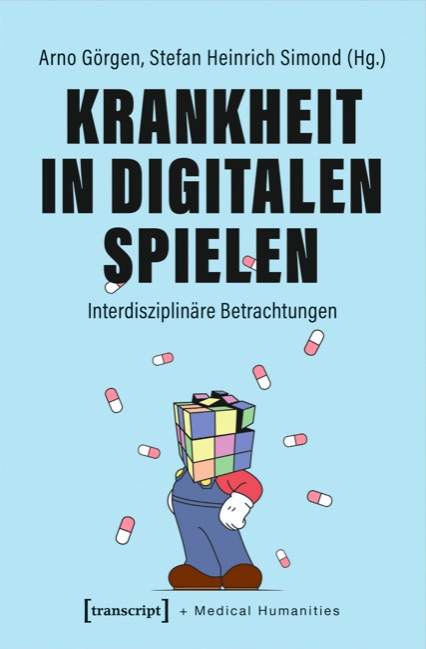 Published as a bilingual (German/English) examination of how health, illness and medicine are articulated in digital gaming, Krankheit in Digitalen Spielen (Illness in Digital Games) features a chapter by CRiCS member Christina Fawcett, with colleagues Alan McGreevy and Marc Ouellette. The chapter is titled "The House and the Infected Body: The Metonymy of Resident Evil 7" and is availble in open access format on the publisher's website.
Published as a bilingual (German/English) examination of how health, illness and medicine are articulated in digital gaming, Krankheit in Digitalen Spielen (Illness in Digital Games) features a chapter by CRiCS member Christina Fawcett, with colleagues Alan McGreevy and Marc Ouellette. The chapter is titled "The House and the Infected Body: The Metonymy of Resident Evil 7" and is availble in open access format on the publisher's website.
Here is the chapter's abstract:
Resident Evil 7, in articulating the threat of infectious mold, situates the illness with the feminine: Historical, cultural, and physiological connections between mold and women gives the game license to limit, objectify, and render the female charac- ters monstrous. First-person immersion brings us into contact with the infection, as mold and Molded threaten the buildings of the Bakers, while mold growing in their brains threatens the Bakers themselves. Through the form of infection, the disease is invasively feminine, reflected in the Bakers and their homes.
To see the full chapter, see the PDF. To view the book, visit the website.
July 31, 2020
"Defending Representation; or, Thinking the Paradox to the Limit"
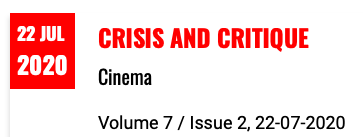 CRiCS member Matthew Flisfeder has recently published in article in the journal Crisis and Critique, titled "Defending Representation; or, Thinking the Paradox to the Limit."
CRiCS member Matthew Flisfeder has recently published in article in the journal Crisis and Critique, titled "Defending Representation; or, Thinking the Paradox to the Limit."
Here is the article's abstract:
Beginning with a response to some contemporary Posthumanist thinkers, this article defends the category of representation as a heuristic for thinking the logic of contradiction and the ethical implications that it derives. Comparing examples in science fiction cinema, and referring to genres such as cyberpunk and dystopia, and tropes such as the time-paradox and the multiverse, and by linking them to the form of cinematic representation, this article demonstrates how representational and teleological thinking help us to grasp the ontological contradiction at sites of ethical action and its possibility. Through an interpretation of these dimensions in time-paradox and multiverse cinema, this article shows that the category of representation, in opposition to the claims of posthumanism, make it possible for us to build—rather than withdraw from—emancipatory reasoning.
To read the full article and learn more about the journal it is published in, visit the journal's website.
July 27, 2020
"Global English in the Wake of the Collapse of Globalism"
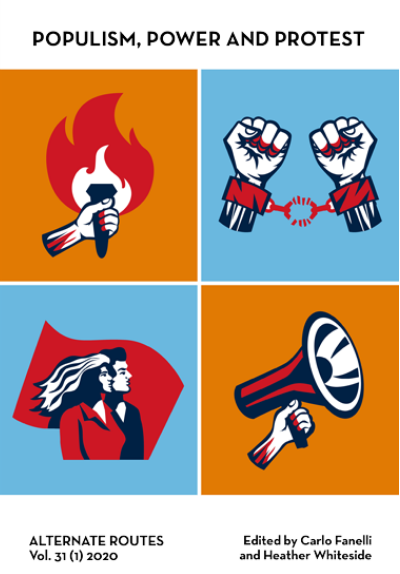 Published in an issue of Alternate Routes: A Journal of Critical Social Research on the theme of populism, power, and protest, CRiCS member Peter Ives recently wrote an article titled "Global English in the Wake of the Collapse of Globalism."
Published in an issue of Alternate Routes: A Journal of Critical Social Research on the theme of populism, power, and protest, CRiCS member Peter Ives recently wrote an article titled "Global English in the Wake of the Collapse of Globalism."
Here is the article's abstract:
Drawing on recent empirical findings, this article argues that the advent of global English is fundamentally related to the massive presence of English as a mandatory subject in national public school-systems throughout the world. It shows how this analysis runs counter to common explanations and assumptions about the spread of English in the latter half of the 20th century. In contrast to the common superficial approaches to the politics of English, this article contends that language politics should be central to current debates of global capitalism which becomes increasingly crucial in the wake of the resurgence of nationalism and shifting terrain of neoliberalism.
To read the full article and learn more about the journal it is published in, visit the journal's website.
July 13, 2020
"Introduction: Reading Capitalist Realism, Ten Years On"

CRiCS member Matthew Flisfeder has recently published an introduction to volume 33, number 1-2 of the journal Mediations: Journal of the Marxist Literary Group. His introduction, titled "Reading Capitalist Realism, Ten Years On," provides a reflection on Mark Fisher's book, Capitalist Realism, along with an overview of the articles in this issue on the them of "Realism Reevaluated."
In lieu of an abstract, here is the beginning of his introduction:
"Today, in the interregnum of the post-crisis, austerity-driven, global neoliberal capitalist society we are confronted with a range of contradictions potentially threatening our very way of life on Earth. From looming ecological catastrophes and the threat of the capitalocene, to the rise of artificial intelligence and digital automation threatening stagnation, to refugee crises and culture wars, and even to a resurgence of new economic crises unforeseen by mainstream economists, it would appear as though it is more necessary than ever to challenge the old Thatcherite dogma that 'there is no alternative' (TINA) to the existing system. That hopeless, cynical claim that even if capitalism is full of flaws and fissures, it is still the least bad system we’ve got, so grin and bear it… But resisting this reified and disavowed root of the conundrum in the very capitalism that the TINA formula defends—if we are to confront these problems head on—perhaps it is time for us on the Left to be somewhat more pragmatic about what or how we even envision the future of the post-capitalist world. We need, perhaps, to be much more realistic; but in what sense?
To read the full introduction and learn more about the journal it is published in, visit the journal's website.
March 16, 2020
"Putting Canadian Language Politics in a Global Context" / “Gramsci, Language Politics and Hegemony” / “Gramsci e l’inglese globale”
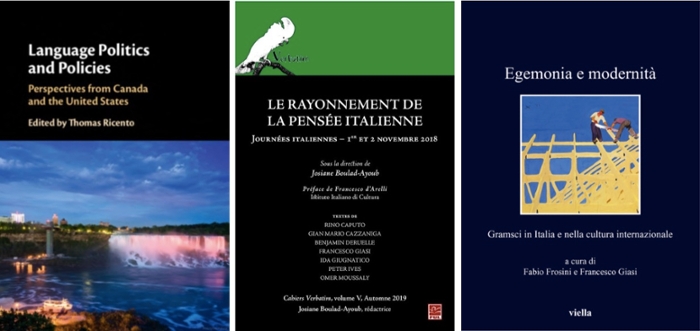
In 2019, CRiCS member Peter Ives published three pieces of research:
- A chapter in the book Language Politics and Policies: Perspectives from Canada and the United States, titled "Putting Canadian Language Politics in a Global Context."
- An article in the journal Le Rayonnement de la Pensee Italienne, titled "Gramsci, Language Politics and Hegemony."
- A chapter in the book Egemonia e modernità, titled "Gramsci e l’inglese globale."
His journal article, which follow from exchanges that took place during a round table at the UAQM, sets out to illustrate "the influence of Italian thought" from the Renaissance to the present day and takes up the Antonio Gramsci's theorization of hegemony in the context of language politics.
To learn more, click on the links above.
March 13, 2020
The Irony and the Ecstasy
The Queer Aging of Pet Shop Boys and LCD Soundsystem in Electronic Dance Music
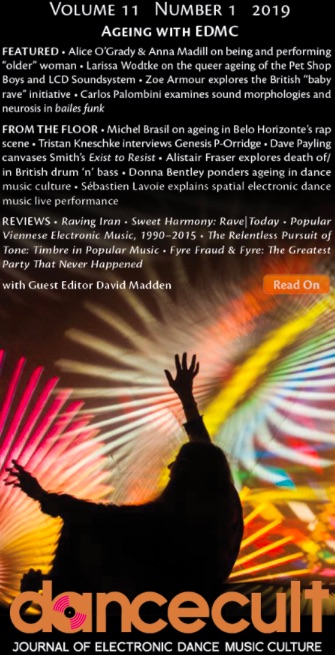
Another exciting publication from a member of CRiCS! In November 2019, Larissa Wodtke published an article titled, "The Irony and the Ecstasy: The Queer Aging of Pet Shop Boys and LCD Soundsystem in Electronic Dance Music" in DanceCult: Journal of Electronic Dance Music Culture.
Here is the article's abstract:
The English duo Pet Shop Boys and American group LCD Soundsystem are notable for their representation as artists who entered and succeeded in the predominately youthful market of popular music and the hedonistic aesthetic of electronic dance music (EDM) at ages considered old for the industry: 32 for vocalists/lyricists Neil Tennant (Pet Shop Boys) and James Murphy (LCD Soundsystem). Neither of these bands makes straightforward EDM—Pet Shop Boys fall under pop and LCD Soundsystem can be considered post-punk—but both are influenced by the New York City dance scene of the late 70s and early 80s, and are characterized as ironic. I argue that Pet Shop Boys and LCD Soundsystem are ironic because of their belated, knowing position in a genre that privileges the infinite present and unproductive reproduction through repetition. In light of Lee Edelman’s claim that irony is the queerest of rhetorical devices, the ambivalence of Pet Shop Boys’ and LCD Soundsystem’s ostensible lack of youth and the youthful temporality of their EDM aesthetic place them in a queer tension between notions of immediate authenticity and the distance of age.
To read the full article and learn more about the journal it is published in, visit the journal's website.
March 4, 2020
Salutogenesis and the Prevention of Social Death
Cross-Cultural Lessons from Genocide-Impacted Rwandans and Indigenous Youth in Canada
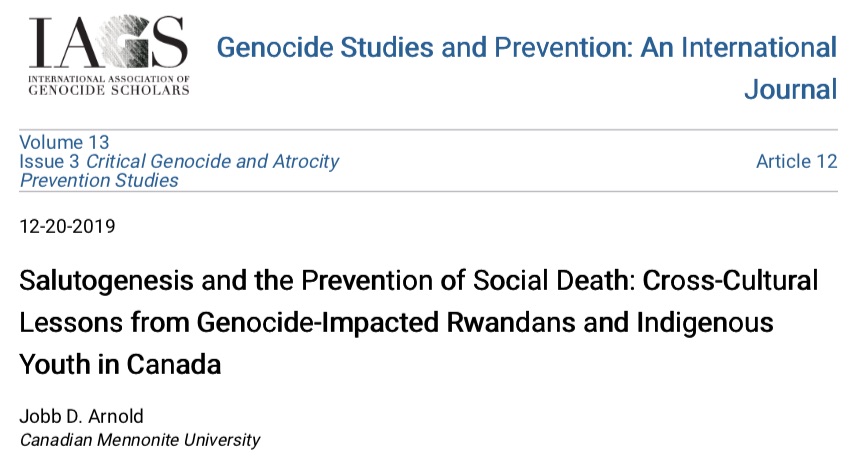
CRiCS member Jobb Arnold has recently published an article in Volume 13, Issue 3: Critical Genocide and Atrocity Prevention Studies of Genocide Studies and Prevention: An International Journal, titled, "Salutogenesis and the Prevention of Social Death: Cross-Cultural Lessons from Genocide-Impacted Rwandans and Indigenous Youth in Canada".
In lieu of an abstract, here is the first paragraph from this article's introduction:
This paper sets out to explore community-based insights into genocide prevention by comparatively examining strategies for group survival developed in communities of Canadian-Indigenous youth and Rwandan student genocide survivors. Of course there are many profound differences in the circumstances that led to these genocides. The Rwanda genocide of 1994 occurred during a civil war and was ended by an absolute victory won by military forces that went on to form the current government – the Rwandan Patriotic Front (RPF). The colonial genocide of Indigenous Peoples onthe Canadian Prairies unfolded in a different way. This comparative research is focused on psycho- social responses among genocide impacted youth. In particular, I am interested in the preventative capacity of communities to employ emergent and adaptive practices that foster resilience and allow healthy forms of group life to displace the pre-conditions of genocide.
This article is open access, and is available in its entirety.
February 28, 2020
Carceral Violence at the Intersection of Madness and Crime in Batman: Arkham Asylum and Batman: Arkham City
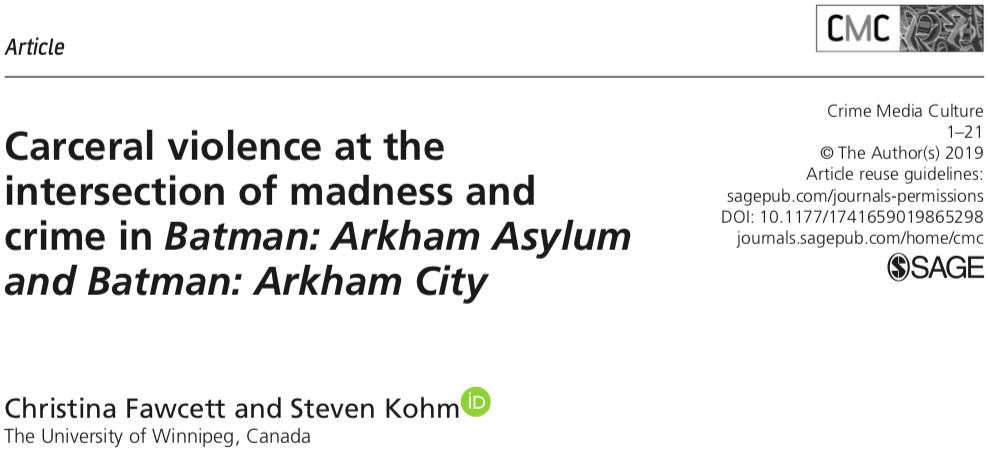
Another exciting publication from a member of CRiCS: "Carceral Violence at the Intersection of Madness and Crime in Batman: Arkham Asylum and Batman: Arkham City" by Christina Fawcett and her colleague Steven Kohm. This article, published in Crime, Media, Culture: An International Journal, takes up the action-adventure video games Batman: Arkham Asylum and Batman: Arkham City.
Here is the abstract for this exciting new article:
The action-adventure video games Batman: Arkham Asylum (2009) and Batman: Arkham City (2011) draw on familiar comic book narratives, themes and characters to situate players in a world of participatory violence, crime and madness. In the first game, the player-as-Batman is situated in Arkham Asylum, a high-security facility for the criminally insane and supervillains that also temporarily houses a general population of prisoners from Blackgate Penitentiary. The elision of criminality and mental illness becomes amplified in the second game with the establishment of Arkham City, a combined facility that conflates asylum and prison, completely dissolving any distinction between crime and madness. We draw on Rafter’s conceptual framework of popular criminology to seriously interrogate the representation of violence, crime and madness in these games. More than simply texts offering popular explanations for crime, the games directly implicate the player in violence enacted upon the bodies of criminals and patients alike. Violence is necessary to move the action of the game forward and evokes a range of emotional responses from players who draw from personal experience and other cultural and media representations as they navigate the game. We argue that while the game celebrates violence and the brutal conditions of incarceration, it also offers possibilities for subversive and critical readings. While working to affirm assumptions about crime and mental illness, the game also provides a visceral and visual critique of excessive punishment by the state as a source of injustice for those deemed mad or bad.
The article is available through the University of Winnipeg's library.
November 12, 2019
Crossing Law’s Border
Canada’s Refugee Resettlement Program
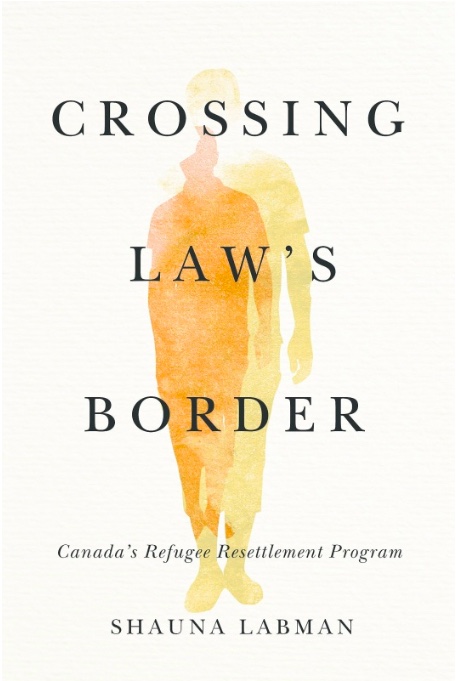 Our newest CRiCS member, Dr. Shauna Labman, has recently published her book, Crossing Law's Border: Canada's Refugee Resettlement Program with UBC Press! Published November 1, 2019 as part of the "Law and Society" series, it discusses topics of immigration and emigration, international law, law and society, and transnationalism and migration.
Our newest CRiCS member, Dr. Shauna Labman, has recently published her book, Crossing Law's Border: Canada's Refugee Resettlement Program with UBC Press! Published November 1, 2019 as part of the "Law and Society" series, it discusses topics of immigration and emigration, international law, law and society, and transnationalism and migration.
Here is an excerpt from the first chapter:
"In the fall of 2015, a new reality hit Canada. Refugees were the topic of conversation – at dinner tables, at schools, in the media, and by politicians in the lead up to a federal election. Not only were they discussed; refugees were present in these spaces. They were invited in, welcomed, and the promises of the politicians swirled around how many to admit. In many ways, this newfound space for welcome was triggered by the now iconic image of a drowned Syrian boy, Alan Kurdi, and the world’s sudden rec- ognition that more needed to be done. In Canada, which was far from the refugee flows, that “more” translated into more resettlement."
For more information, visit the publisher's webpage.
October 31, 2019
Clever Maids, Fearless Jacks, and a Cat
Fairy Tales from a Living Oral Tradition
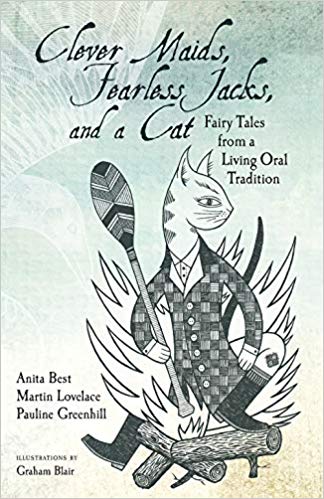 We're excited to share another recent publication from a member of CRiCS! Dr. Pauline Greenhill (Women's and Gender Studies) has recently co-authored a book, titled Clever Maids, Fearless Jacks, and a Cat: Fairy Tales from a Living Oral Tradition with Utah State University Press with her colleagues Dr. Anita Best and Dr. Martin Lovelace. The book, lauded as “A very valuable contribution to the field of fairy-tale studies” (Claudia Schwabe, Utah State University) can be viewed in hard-copy in CRiCS (3C25).
We're excited to share another recent publication from a member of CRiCS! Dr. Pauline Greenhill (Women's and Gender Studies) has recently co-authored a book, titled Clever Maids, Fearless Jacks, and a Cat: Fairy Tales from a Living Oral Tradition with Utah State University Press with her colleagues Dr. Anita Best and Dr. Martin Lovelace. The book, lauded as “A very valuable contribution to the field of fairy-tale studies” (Claudia Schwabe, Utah State University) can be viewed in hard-copy in CRiCS (3C25).
Here is more information from the publisher's page:
Clever Maids, Fearless Jacks, and a Cat showcases the stories of two Newfoundland storytellers, Philip Pius Power and Alice Lannon. Ethnopoetic transcriptions of these sensitive and artful tales, which have been passed on orally for generations as part of a community tradition, give accounts of living oral performances from the last quarter of the twentieth century and demonstrate the artistry that is possible without the written word.
Here, eight tales from Power and five tales from Lannon take up issues of vital concern—such as spousal abuse, bullying, and social and generational conflict—allusively, through a screen of fiction. In commentary following the stories Anita Best, Martin Lovelace, and Pauline Greenhill discuss the transmission of fairy tales in oral tradition, address the relation of these magic tales to Lannon’s and Power’s other stories, and share specifics about Newfoundland storytelling and the two tellers themselves. The text is further enriched by expressive illustrations from artist Graham Blair.
Clever Maids, Fearless Jacks, and a Cat presents the fairy-tale oeuvres of two superb storytellers as a contribution to interdisciplinary fairy-tale studies and folklore—countering fairy-tale studies’ focus on written traditions and printed texts—as well as to gender studies, cultural studies, Newfoundland studies, and Canadian studies. Students, scholars, and general readers interested in folk and fairy tales, contemporary Märchen, Newfoundland folklore, or oral tradition more generally will find much of value in these pages.
Support for this publication was provided, in part, by the University of Winnipeg.
For more information, visit the publisher's webpage.
October 25, 2019
Liberating Knowledge at the Margins
Towards a Discursive-Transactional Research Paradigm in LIS
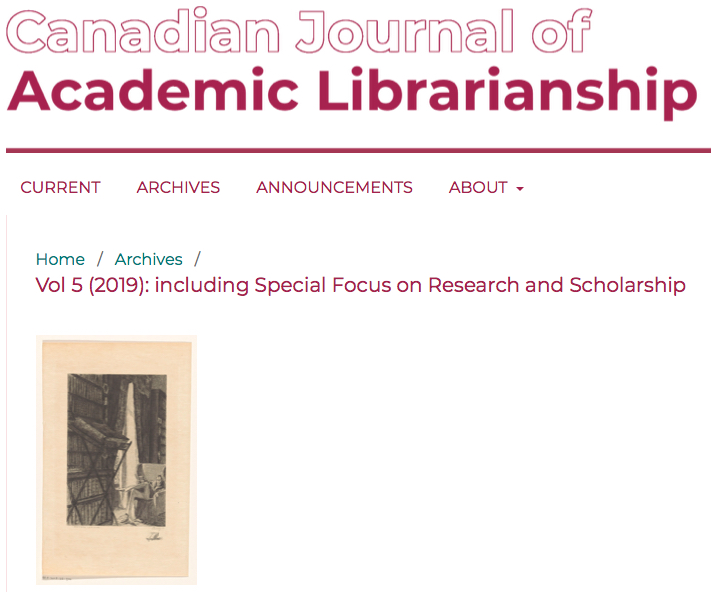 We're happy to share that CRiCS member Michael Dudley, Community Outreach Librarian at UW with collection responsibilities for Indigenous Studies, history, political science, disability studies and theatre and film, has recently published an article in the Canadian Journal of Academic Librarianship:
We're happy to share that CRiCS member Michael Dudley, Community Outreach Librarian at UW with collection responsibilities for Indigenous Studies, history, political science, disability studies and theatre and film, has recently published an article in the Canadian Journal of Academic Librarianship:
Liberating Knowledge at the MarginsTowards a Discursive-Transactional Research Paradigm in LIS
Abstract: This paper proposes an LIS research paradigm by which the transactional relationships between knowledge organization systems (KOS) and external scholarly discourses may be identified and examined. It considers subject headings as discursive acts (or Foucauldian “statements”) unto themselves—in terms of their materiality, rarity, exteriority, and accumulation—arising from such discourses, and which, through their usage in library catalogues and databases, produce their own discursive and non-discursive effects. It is argued that, since these statements lead through their existence and discovery (or absence and neglect) to the creation of further texts, then potentially oppressive discursive formations may result where marginalized knowledges are concerned. The paper aims to better understand these processes in scholarly discourses—and the role of libraries therein—by examining recent examples in the LIS literature regarding matters of race and gender, and which are suggestive of this emergent paradigm.
Visit the journal's page to read the full article!
October 16, 2019
Ethics Under Capital
MacIntyre, Communication, and the Culture Wars
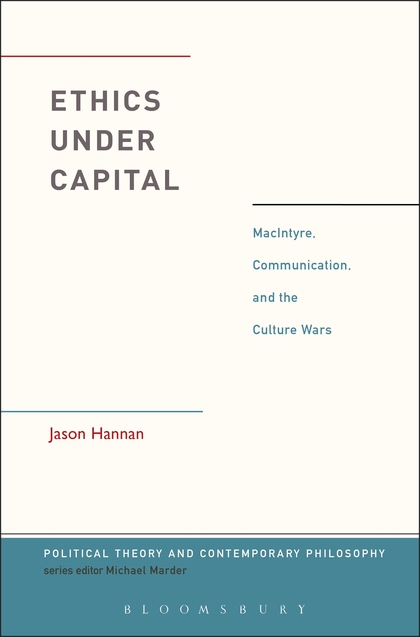 Another exciting publication from a member of CRiCS: Ethics Under Capital: MacIntyre, Communication, and the Culture Wars, by Dr. Jason Hannan. Described by theorist Slavoj Žižek as making "a forceful case for the renewed relevance of Alasdair MacIntyre's ethics of the virtues, grounded in a common way of life," this monograph is due to be officially released November 14, 2019.
Another exciting publication from a member of CRiCS: Ethics Under Capital: MacIntyre, Communication, and the Culture Wars, by Dr. Jason Hannan. Described by theorist Slavoj Žižek as making "a forceful case for the renewed relevance of Alasdair MacIntyre's ethics of the virtues, grounded in a common way of life," this monograph is due to be officially released November 14, 2019.
Here is the description from the publisher's website for this book:
"We in the West are living in the midst of a deadly culture war. Our rival worldviews clash with increasing violence in the public arena, culminating in deadly riots and mass shootings. A fragmented left now confronts a resurgent and reactionary right, which threatens to reverse decades of social progress. Commentators have declared that we live in a “post-truth world,” one dominated by online trolls and conspiracy theorists. How did we arrive at this cultural crisis? How do we respond?
This book speaks to this critical moment through a new reading of the thought of Alasdair MacIntyre. Over thirty years ago, MacIntyre predicted the coming of a new Dark Ages. The premise of this book is that MacIntyre was right all along. It presents his diagnosis of our cultural crisis. It further presents his answer to the challenge of public reasoning without foundations. Pitting him against John Rawls, Jürgen Habermas, and Chantal Mouffe, Ethics Under Capital argues that MacIntyre offers hope for a critical democratic politics in the face of the culture wars."
Visit the publisher's page for more information!
October 9, 2019
Older Sister. Not Necessarily Related.
A Memoir
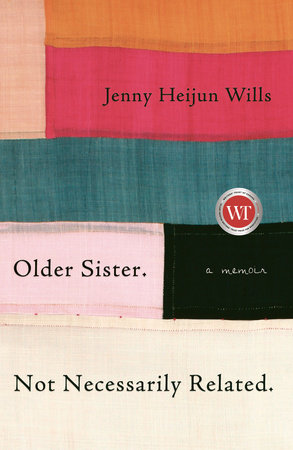 We're excited to share a recent publication by one of CRiCS's Members: Older Sister. Not Necessarily Related. by Jenny Heijun Wills. Described as "A beautiful and haunting memoir of kinship and culture rediscovered," this book was recently shortlisted as a finalist for the Hilary Weston Writers' Trust Prize for Nonfiction. Congratulations on your publication and nomination, Jenny.
We're excited to share a recent publication by one of CRiCS's Members: Older Sister. Not Necessarily Related. by Jenny Heijun Wills. Described as "A beautiful and haunting memoir of kinship and culture rediscovered," this book was recently shortlisted as a finalist for the Hilary Weston Writers' Trust Prize for Nonfiction. Congratulations on your publication and nomination, Jenny.
Read on for the book's description from the publisher's website:
Jenny Heijun Wills was born in Korea and adopted as an infant into a white family in small-town Canada. In her late twenties, she reconnected with her first family and returned to Seoul where she spent four months getting to know other adoptees, as well as her Korean mother, father, siblings, and extended family. At the guesthouse for transnational adoptees where she lived, alliances were troubled by violence and fraught with the trauma of separation and of cultural illiteracy. Unsurprisingly, heartbreakingly, Wills found that her nascent relationships with her family were similarly fraught.
Ten years later, Wills sustains close ties with her Korean family. Her Korean parents and her younger sister attended her wedding in Montreal, and that same sister now lives in Canada. Remarkably, meeting Jenny caused her birth parents to reunite after having been estranged since her adoption. Little by little, Jenny Heijun Wills is learning and relearning her stories and those of her biological kin, piecing together a fragmented life into something resembling a whole.
Delving into gender, class, racial, and ethnic complexities, as well as into the complex relationships between Korean women--sisters, mothers and daughters, grandmothers and grandchildren, aunts and nieces--Older Sister. Not Necessarily Related. describes in visceral, lyrical prose the painful ripple effects that follow a child's removal from a family, and the rewards that can flow from both struggle and forgiveness.
Visit the publisher's page for more information and to read an excerpt from the book.
Visit this page often for different features for newly published works by members of CRiCS!
More coming soon.
